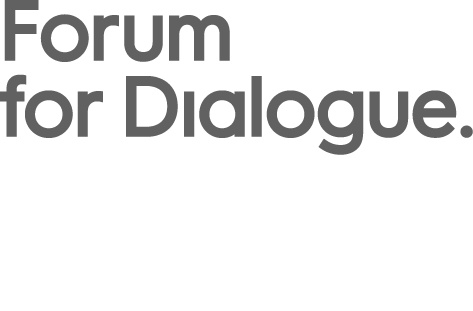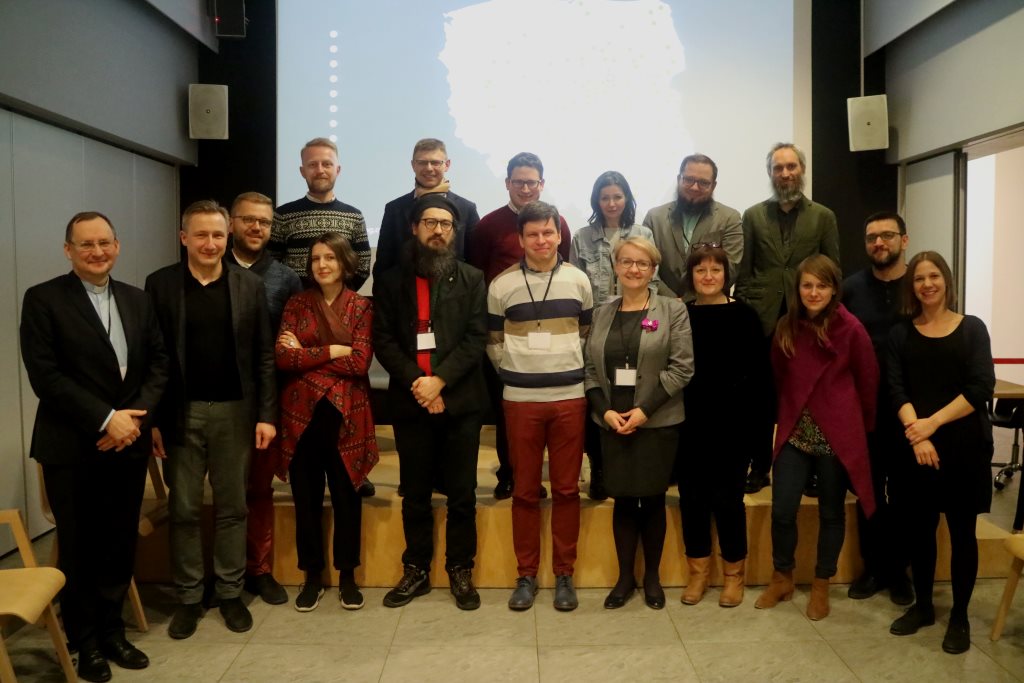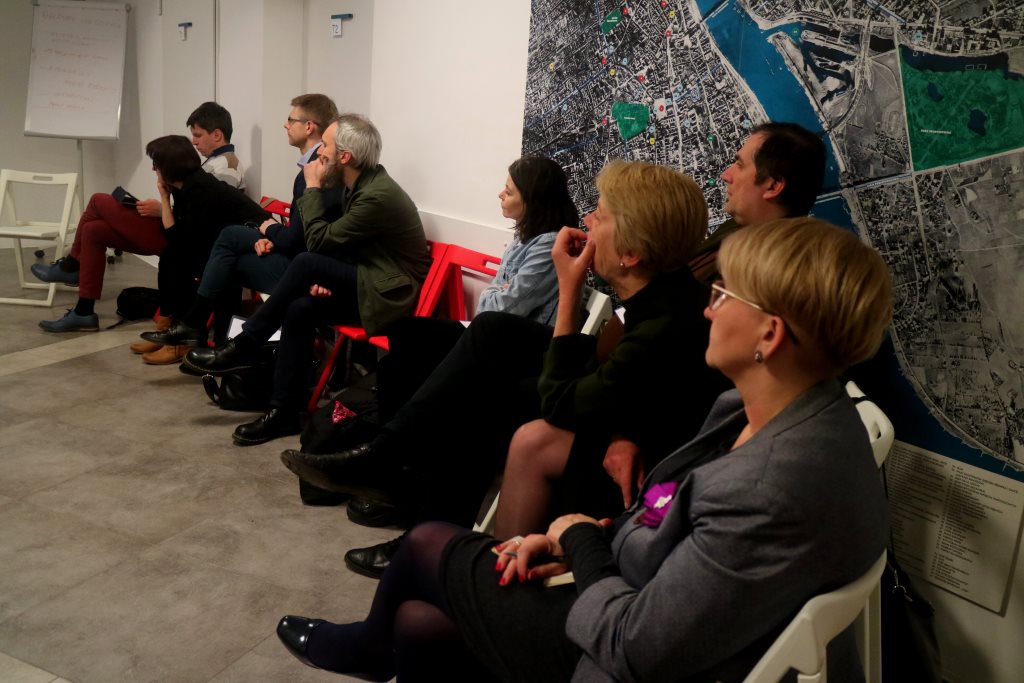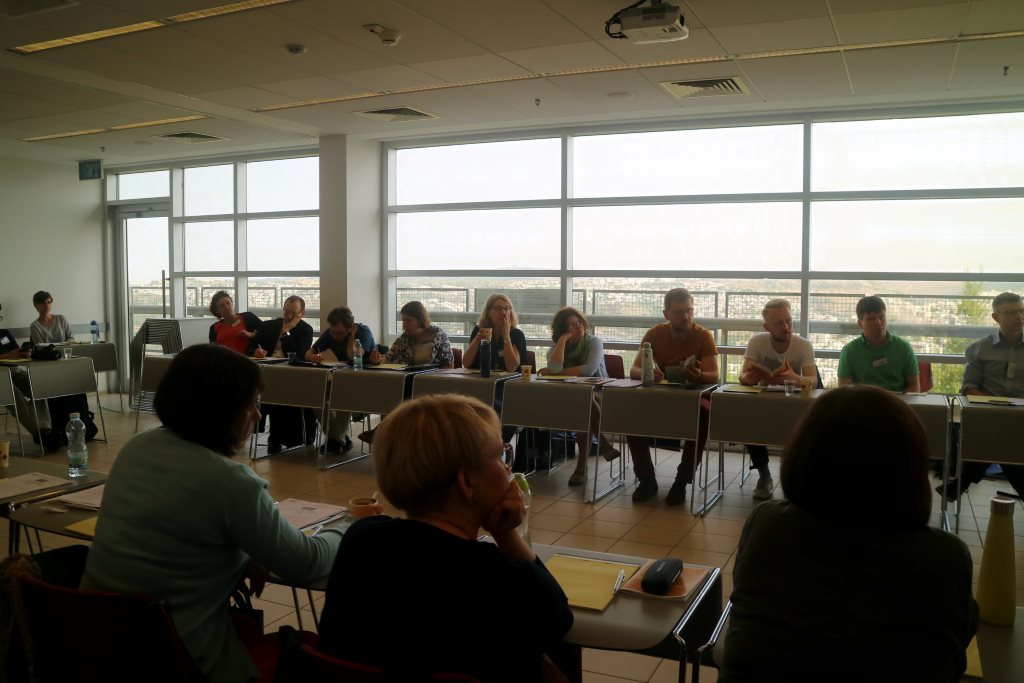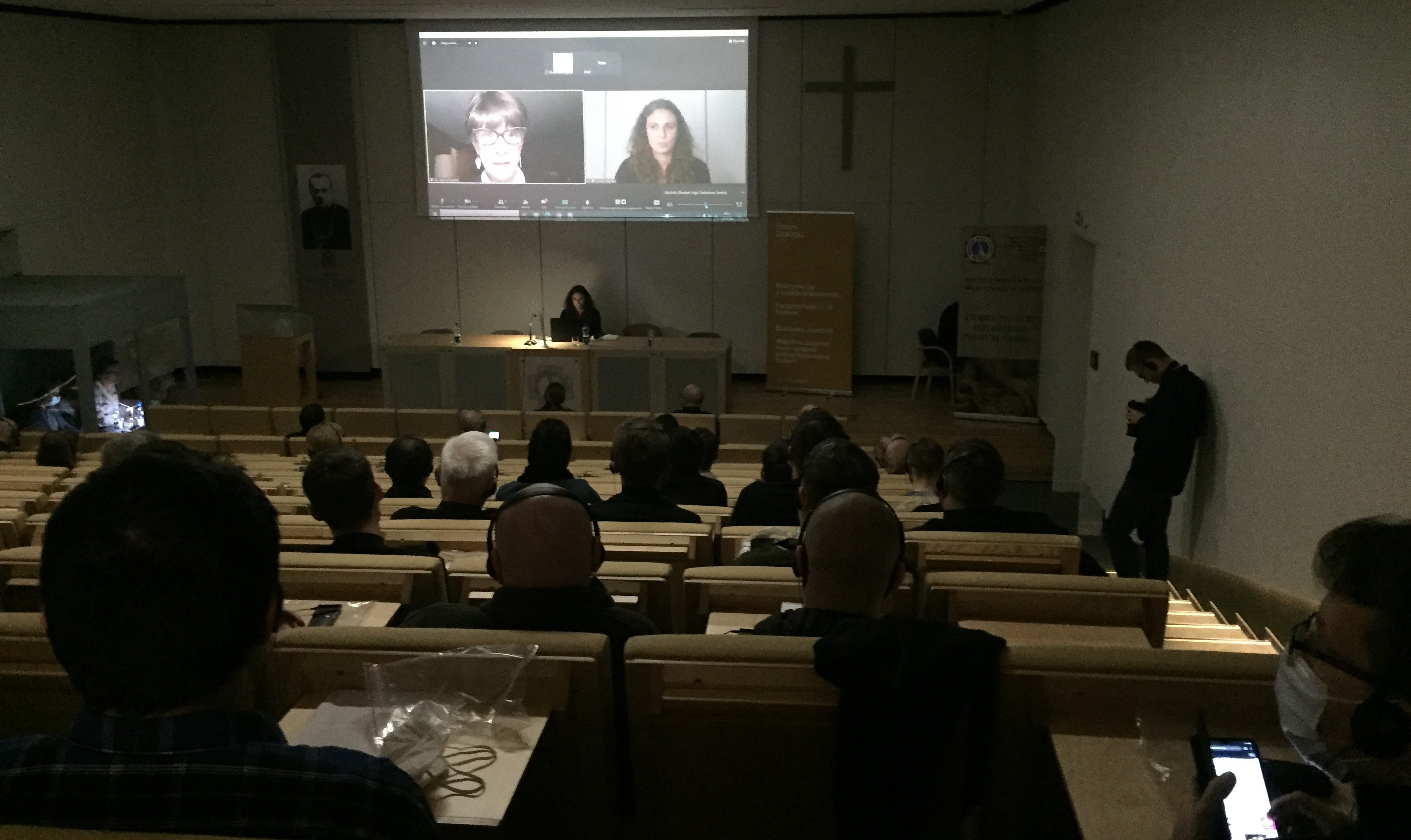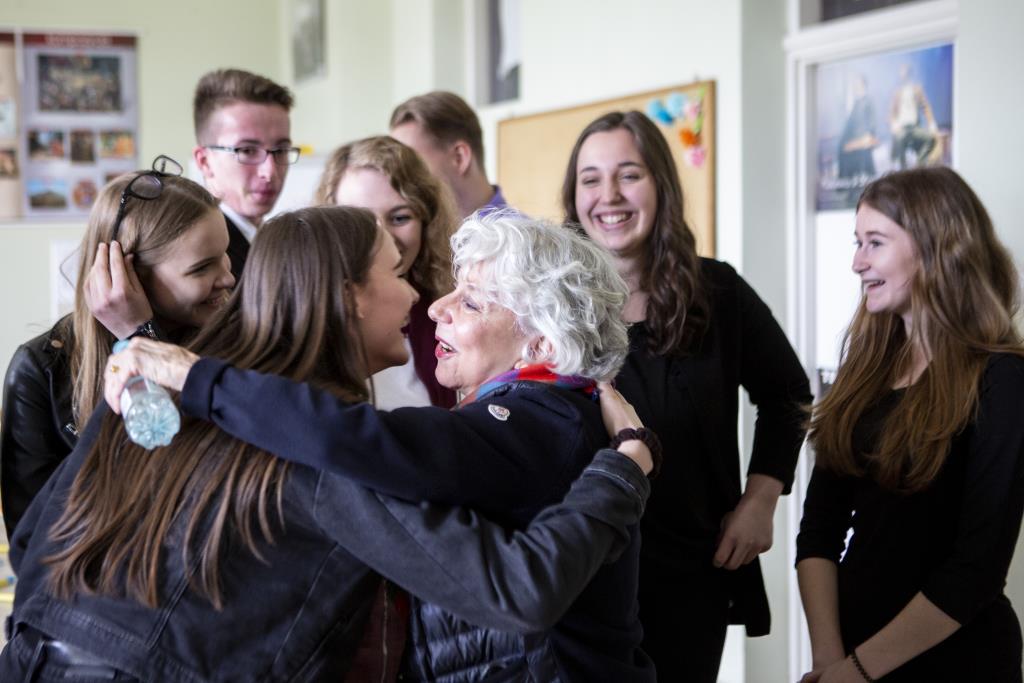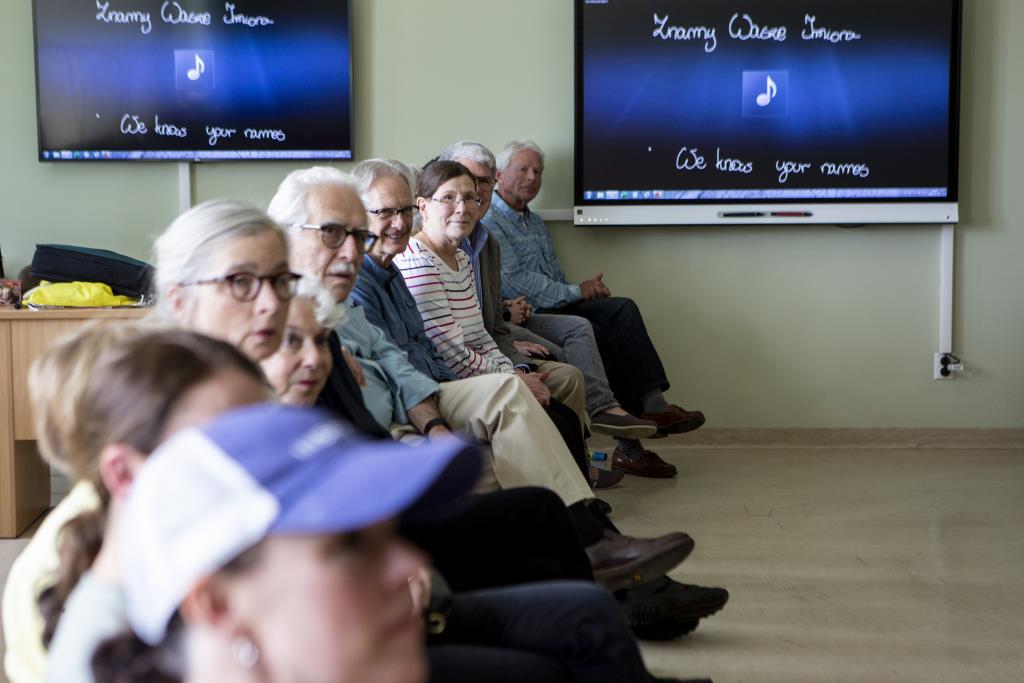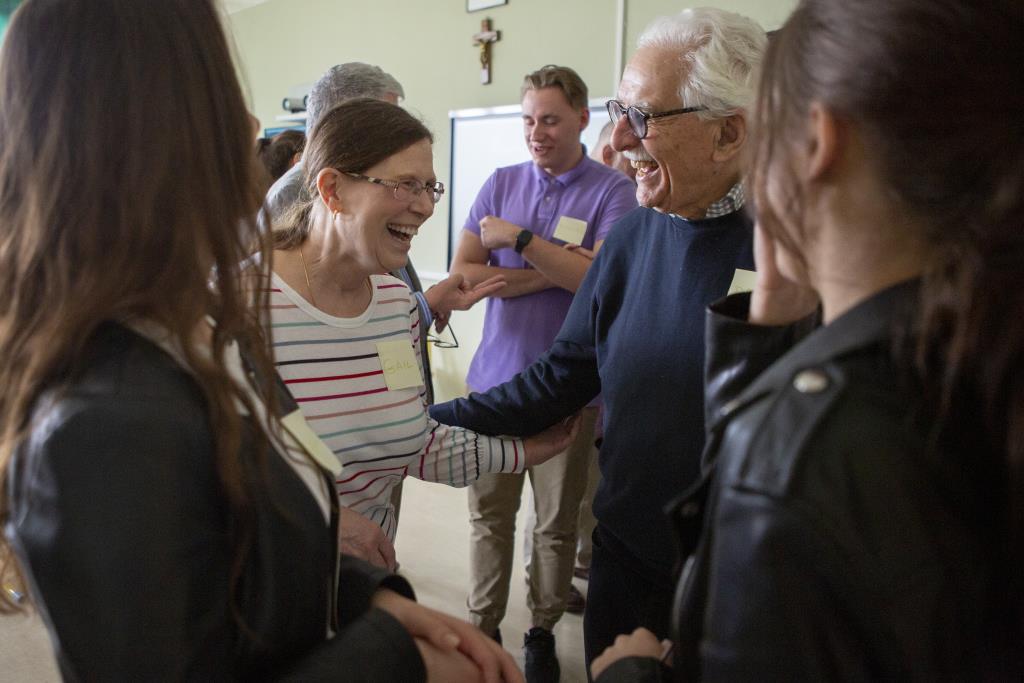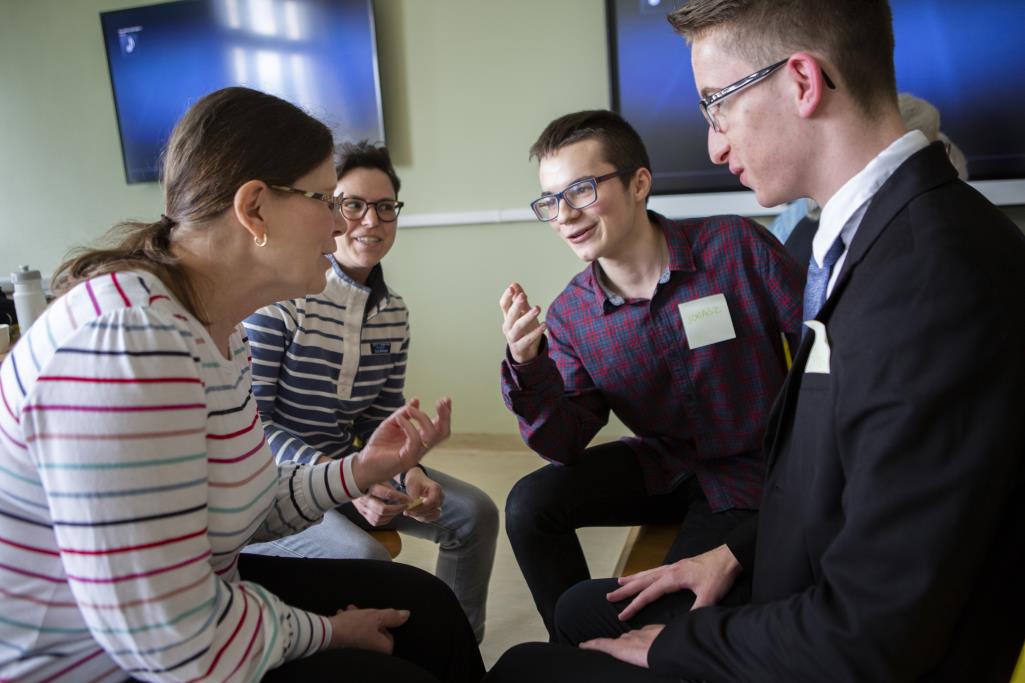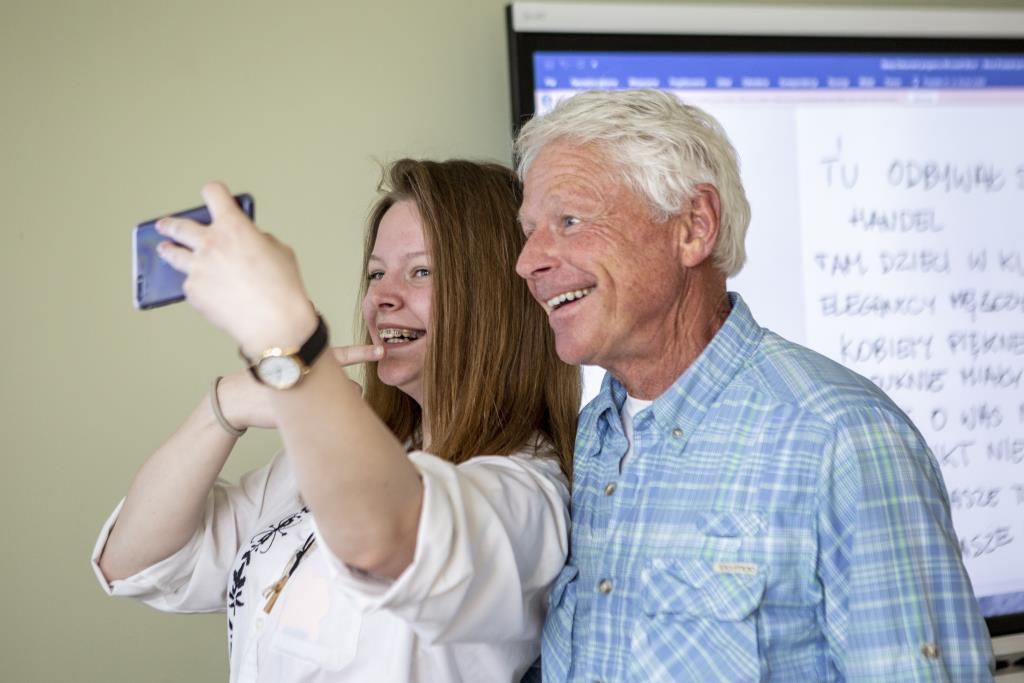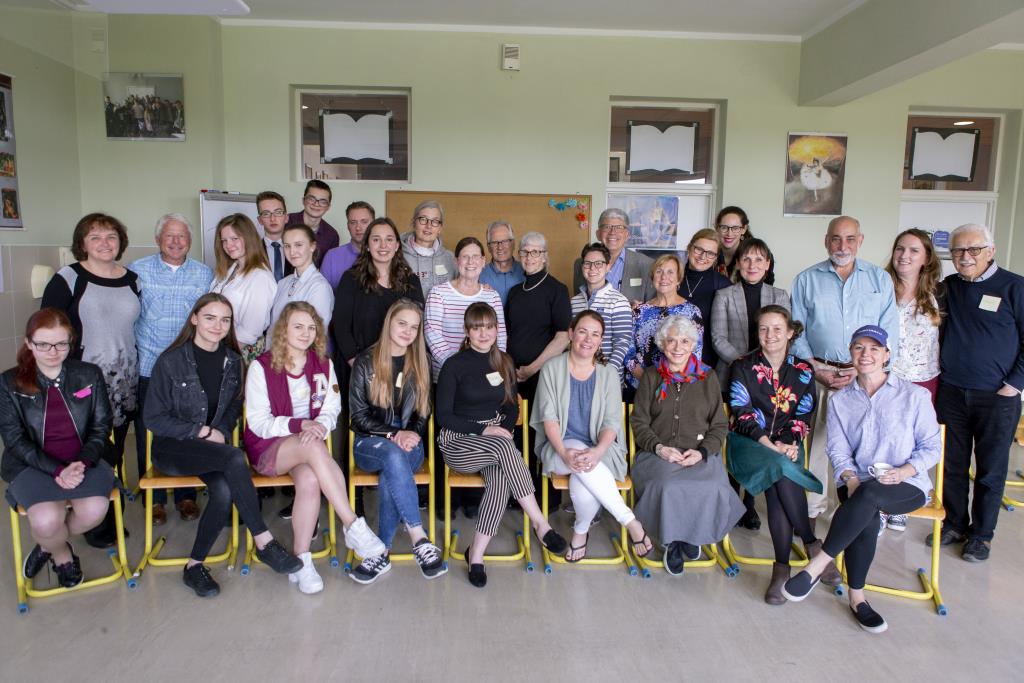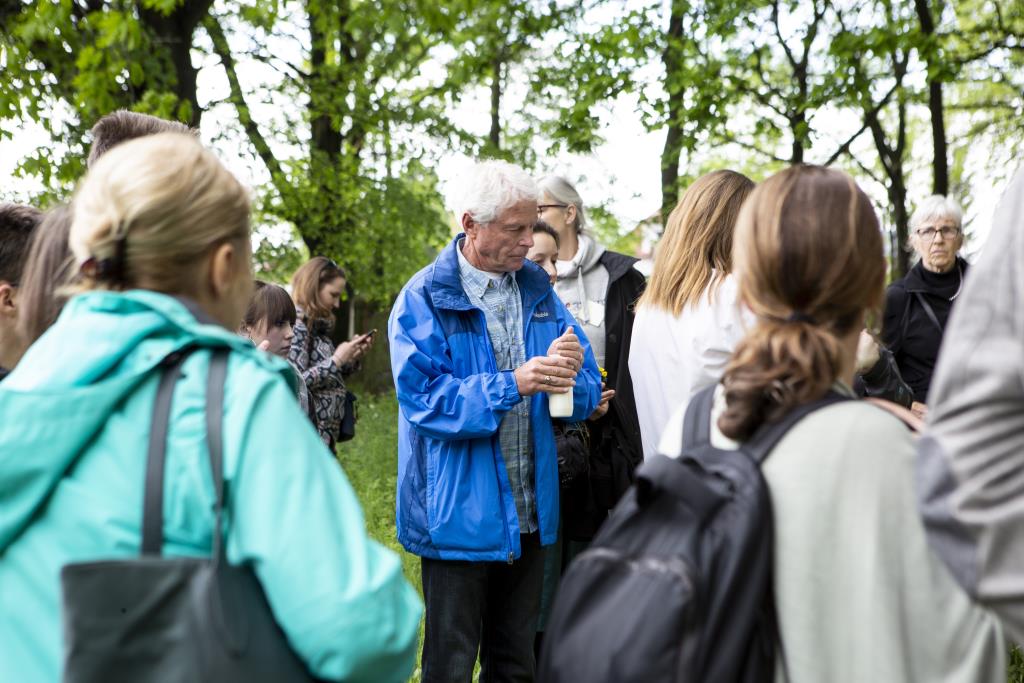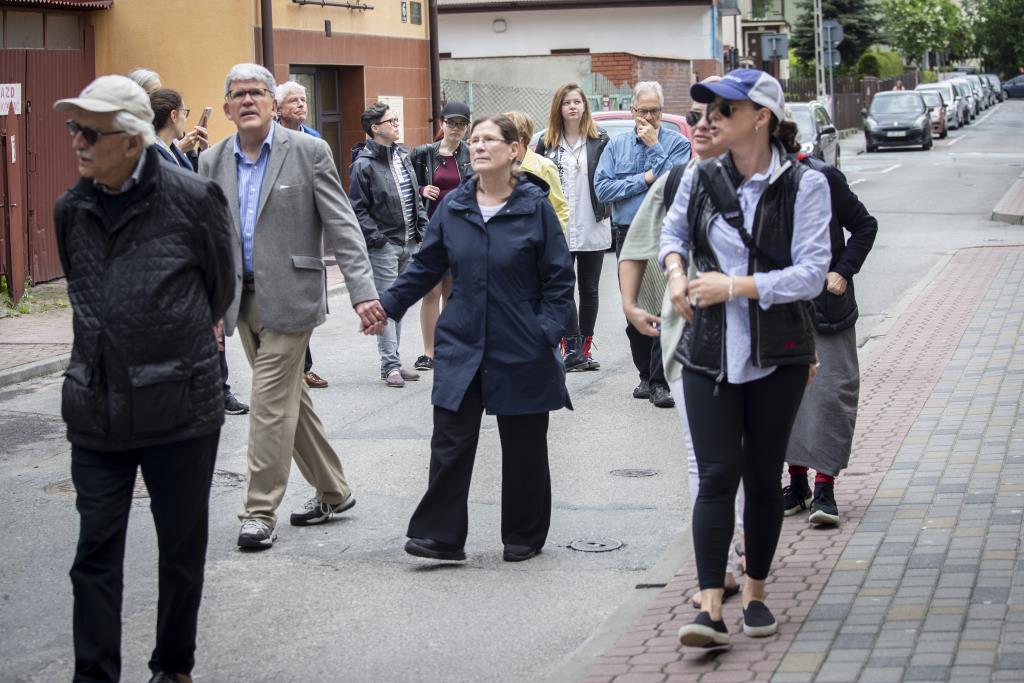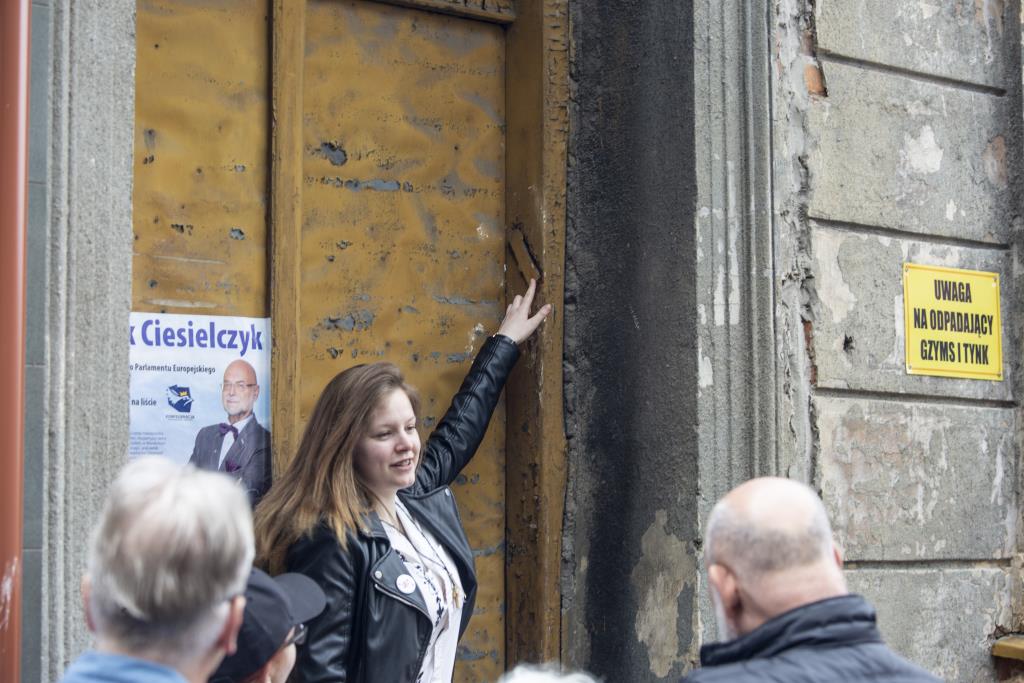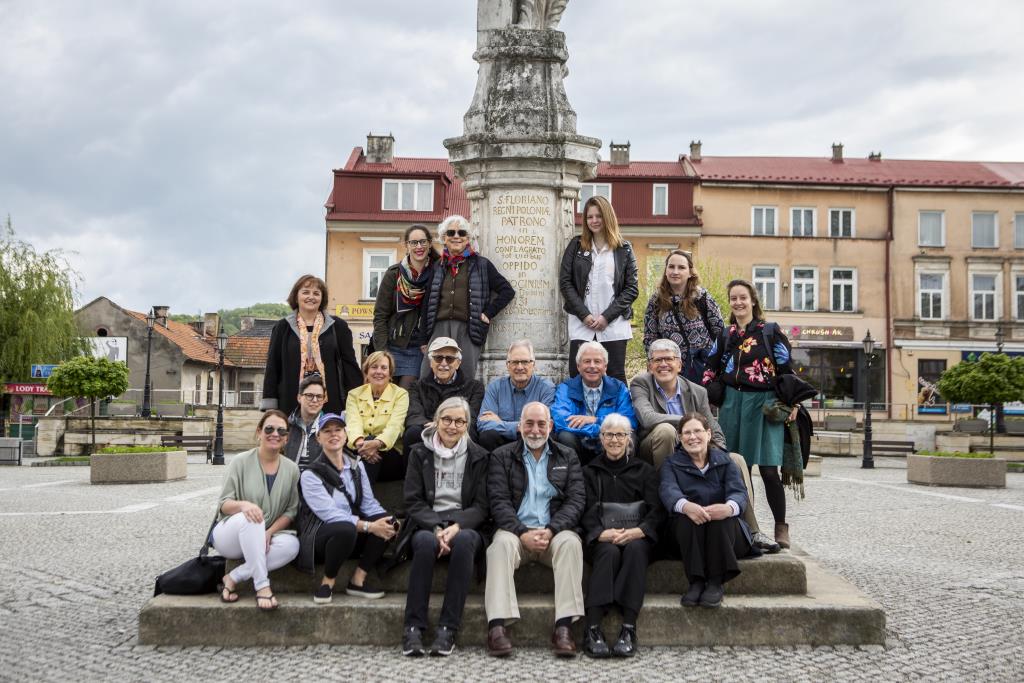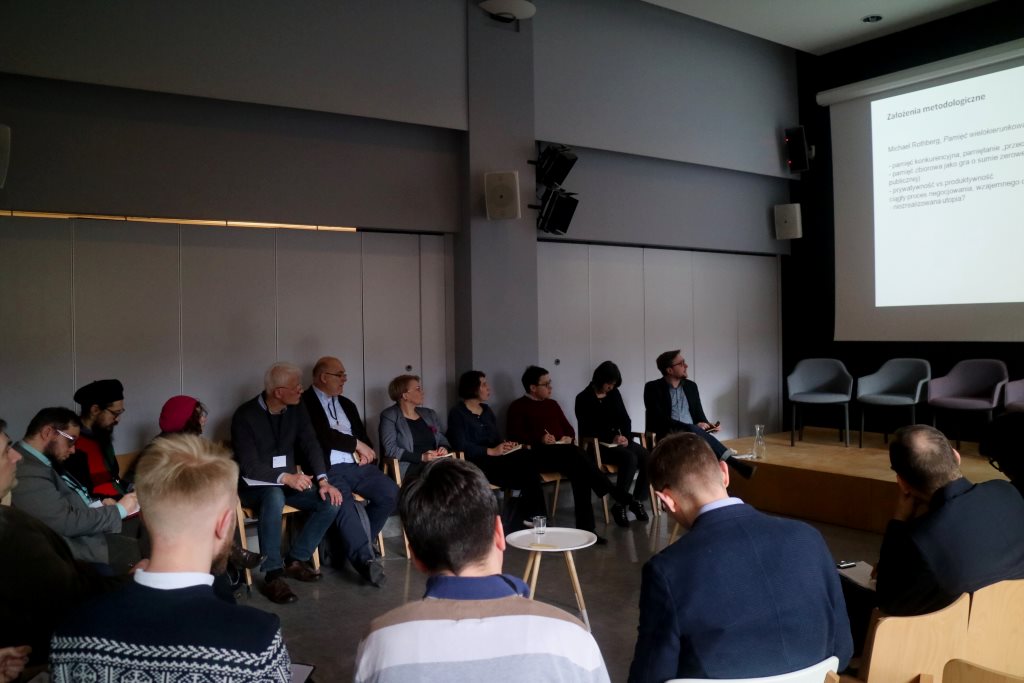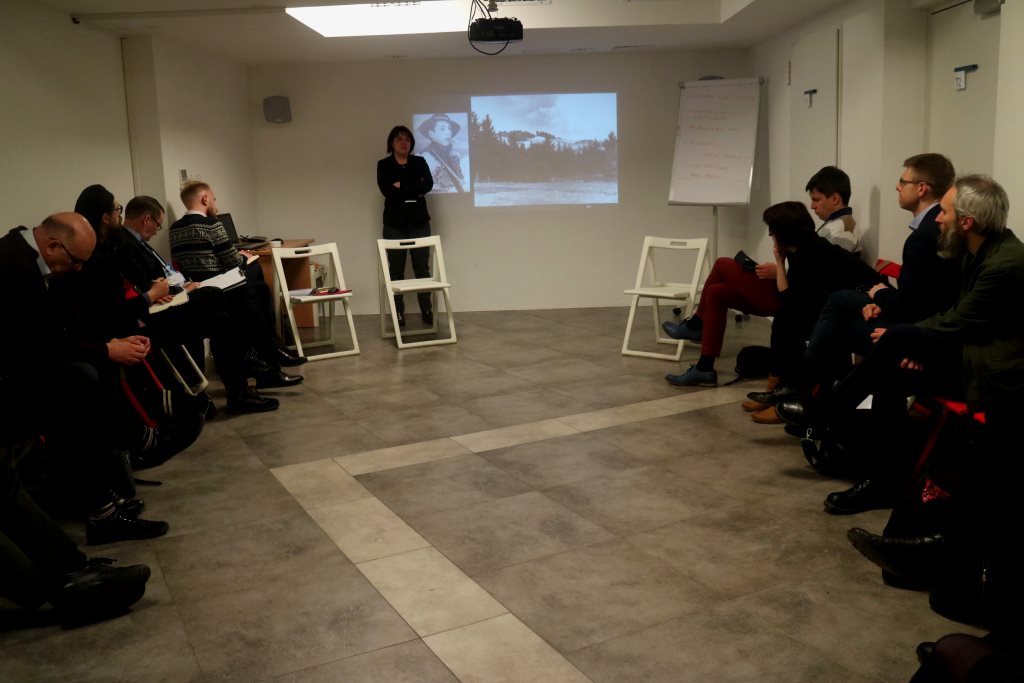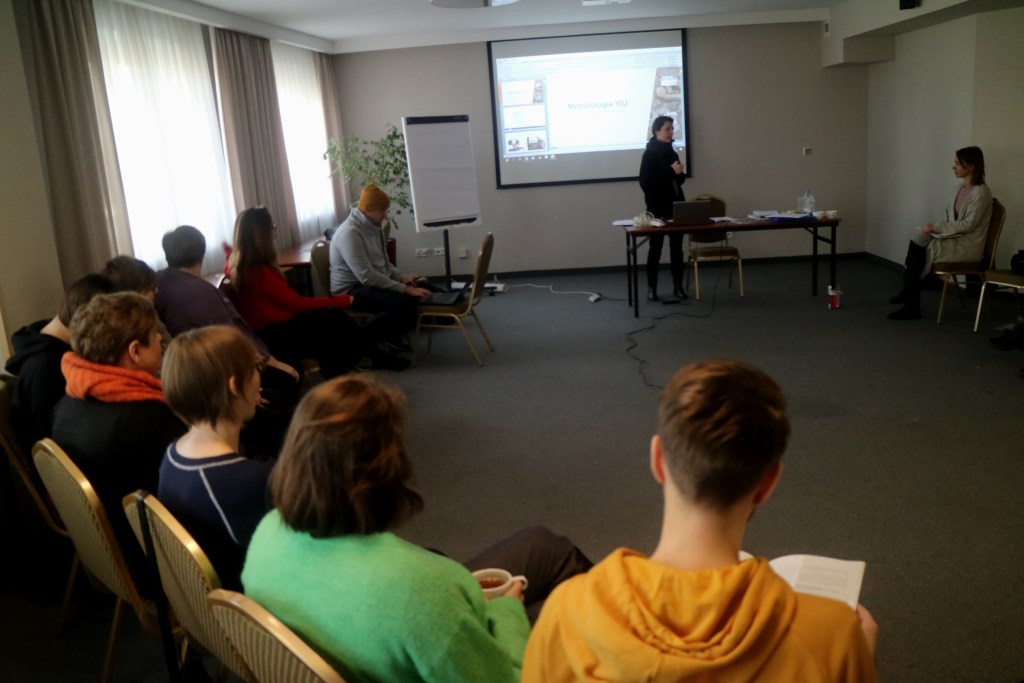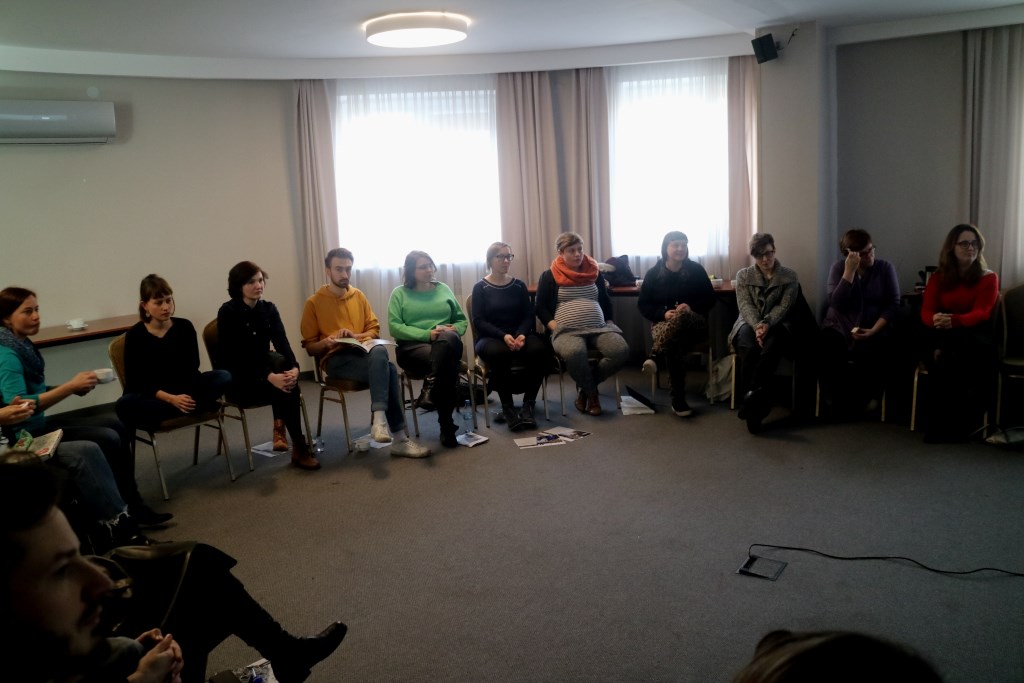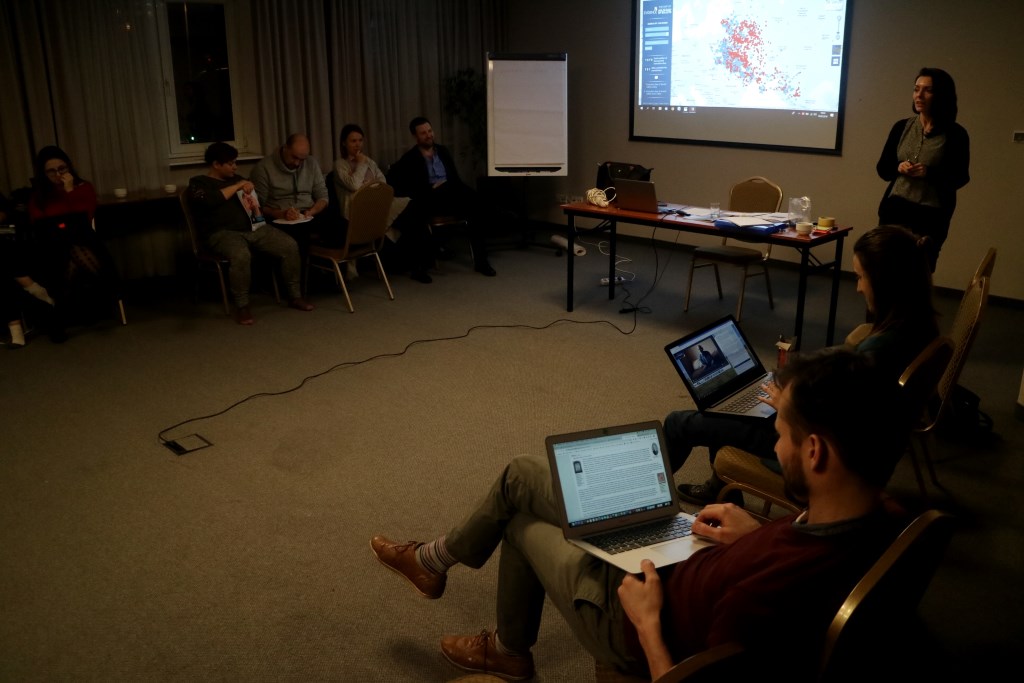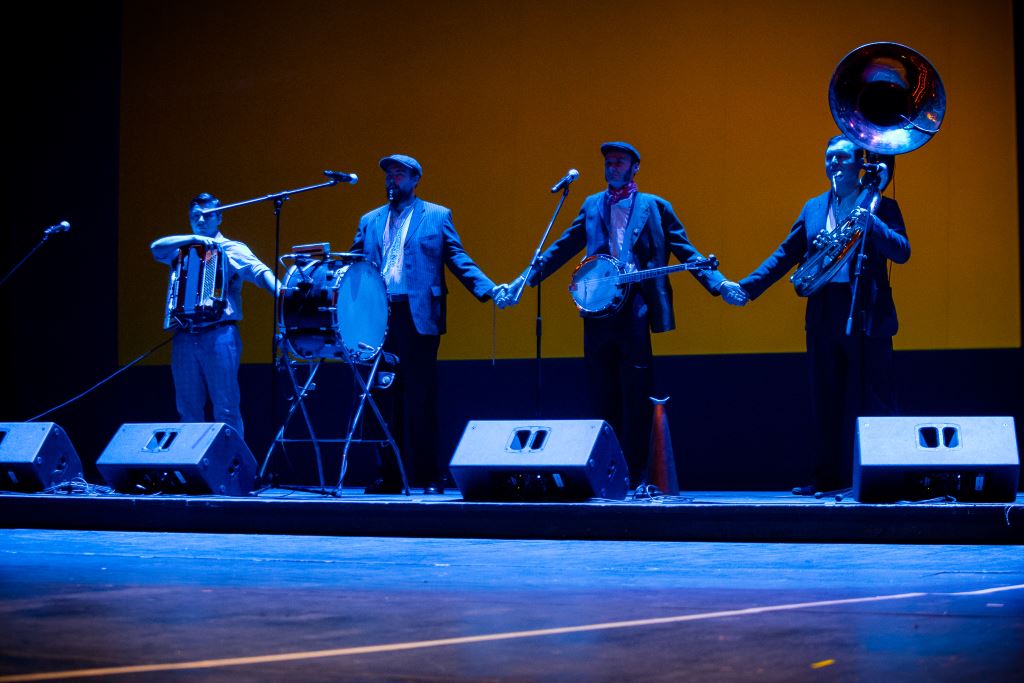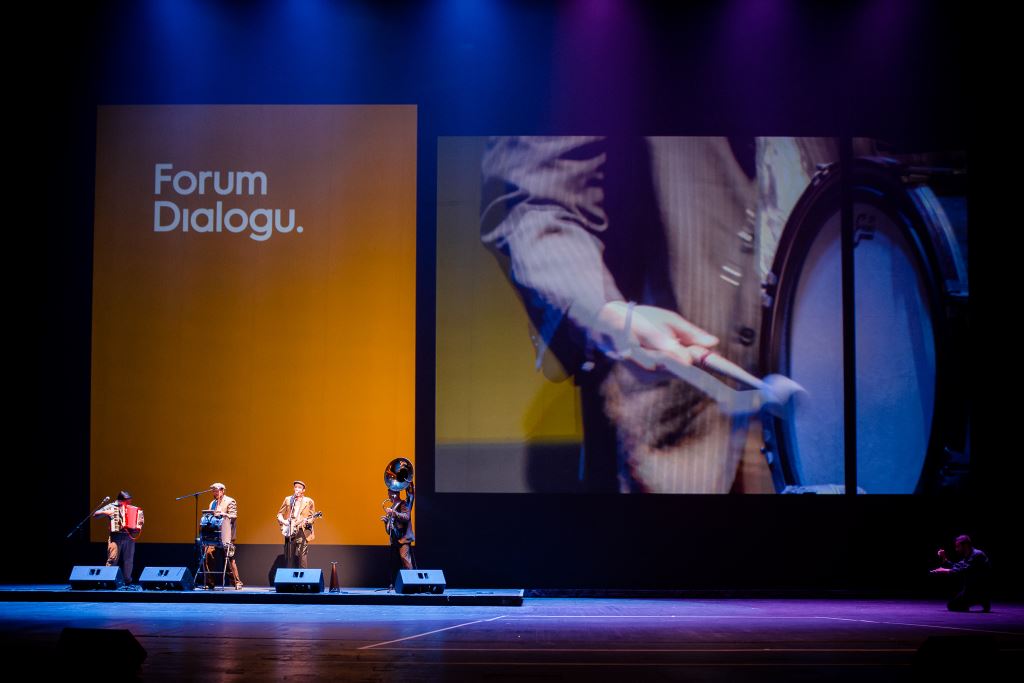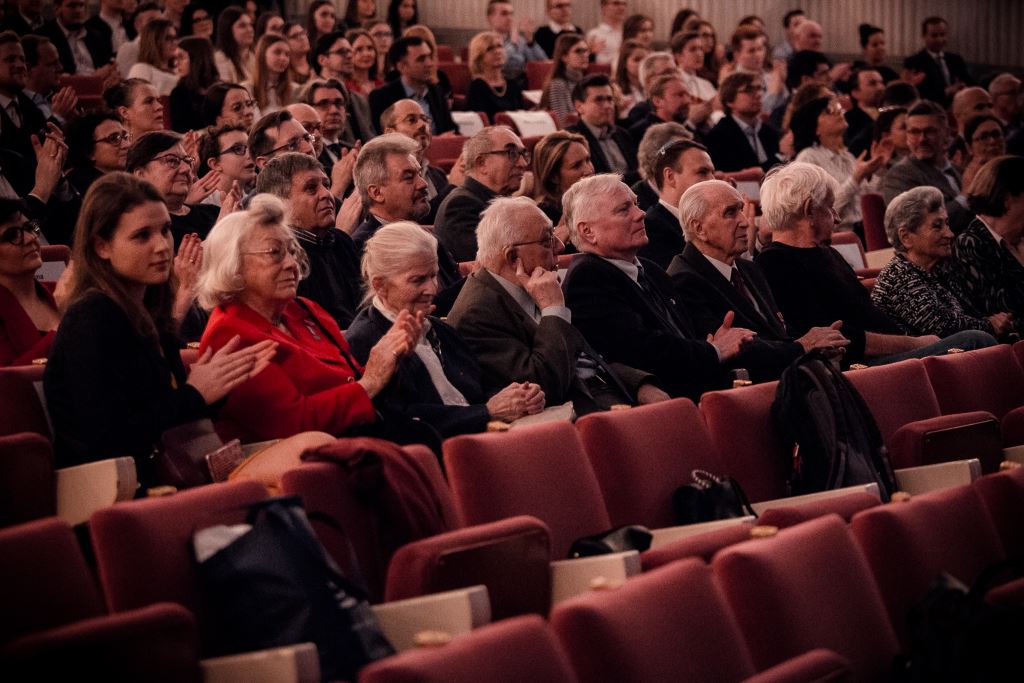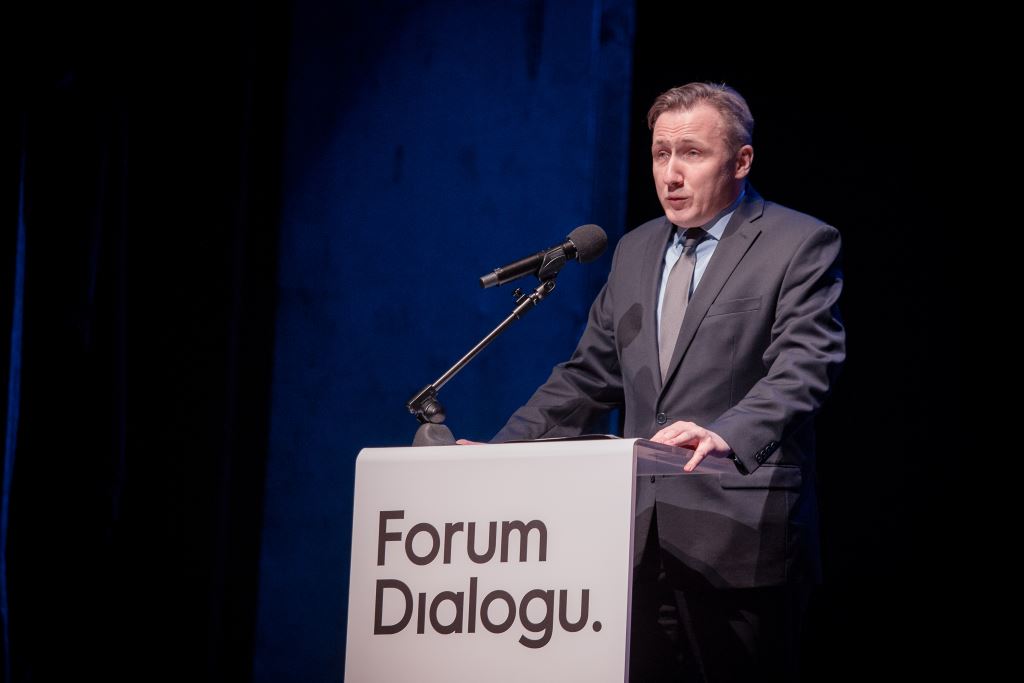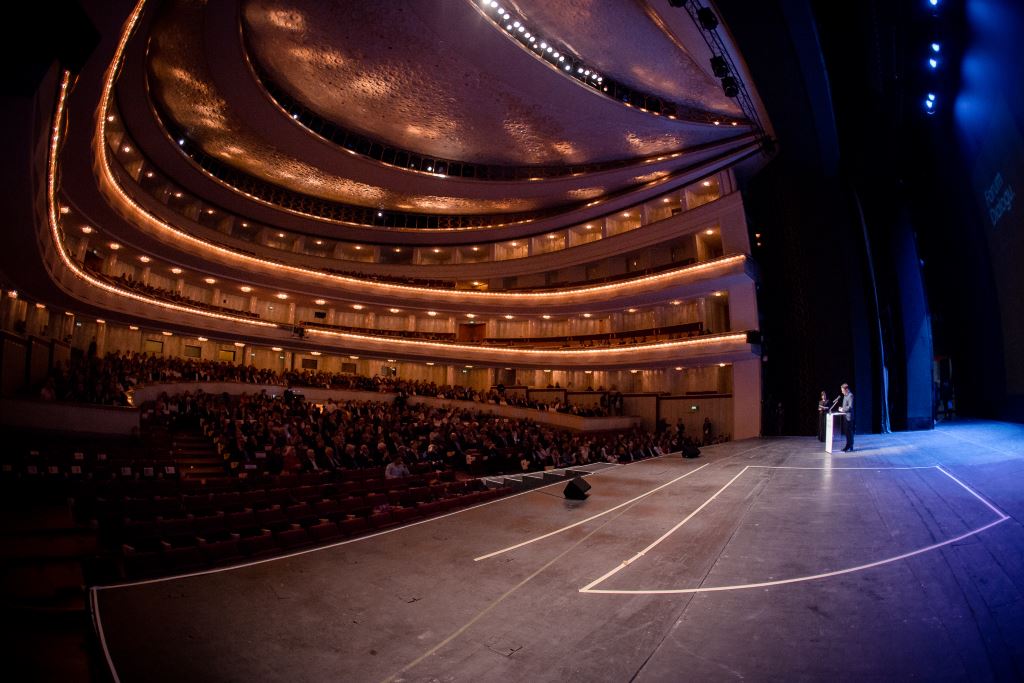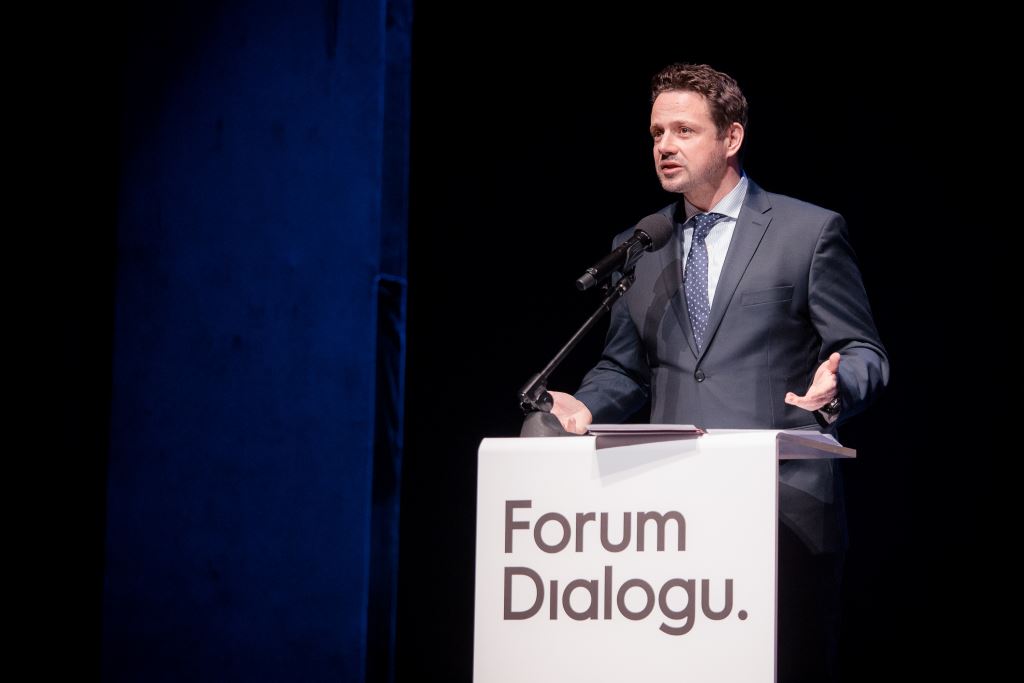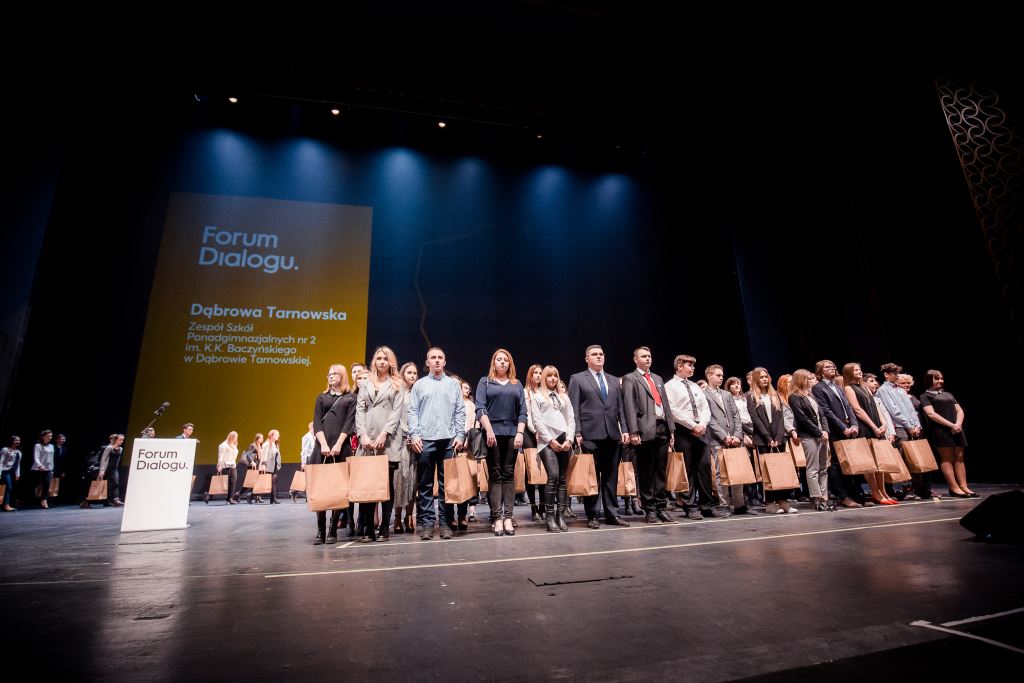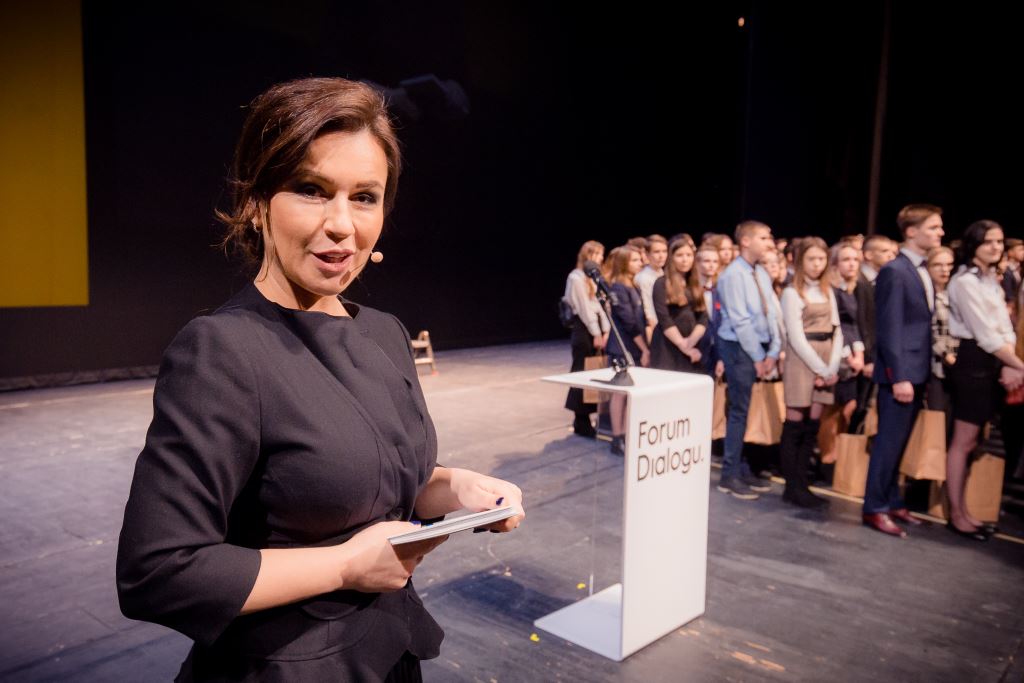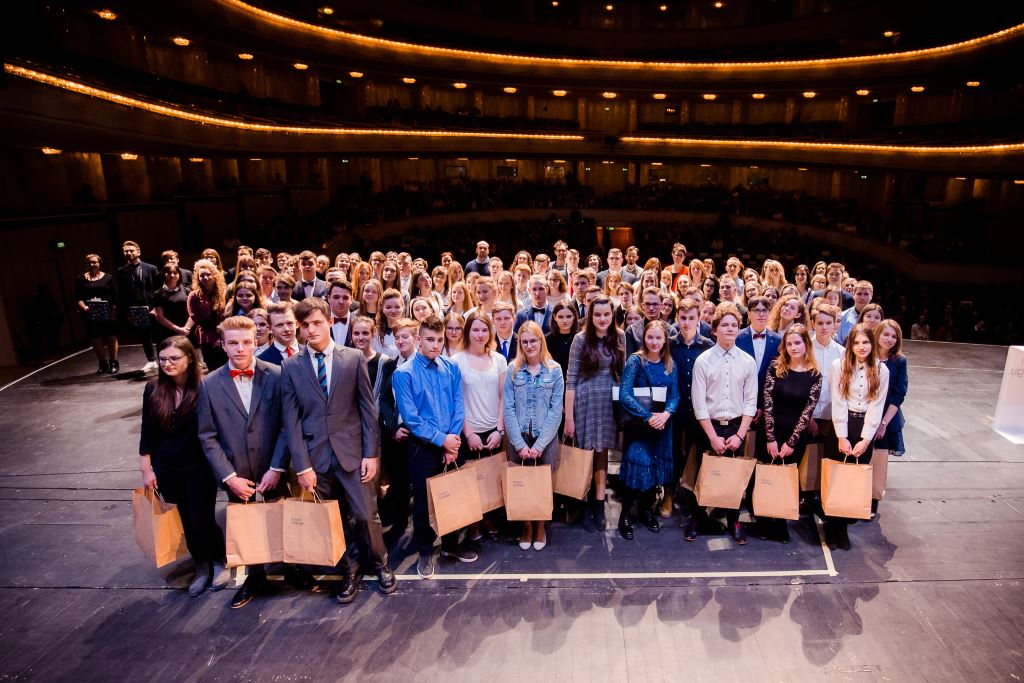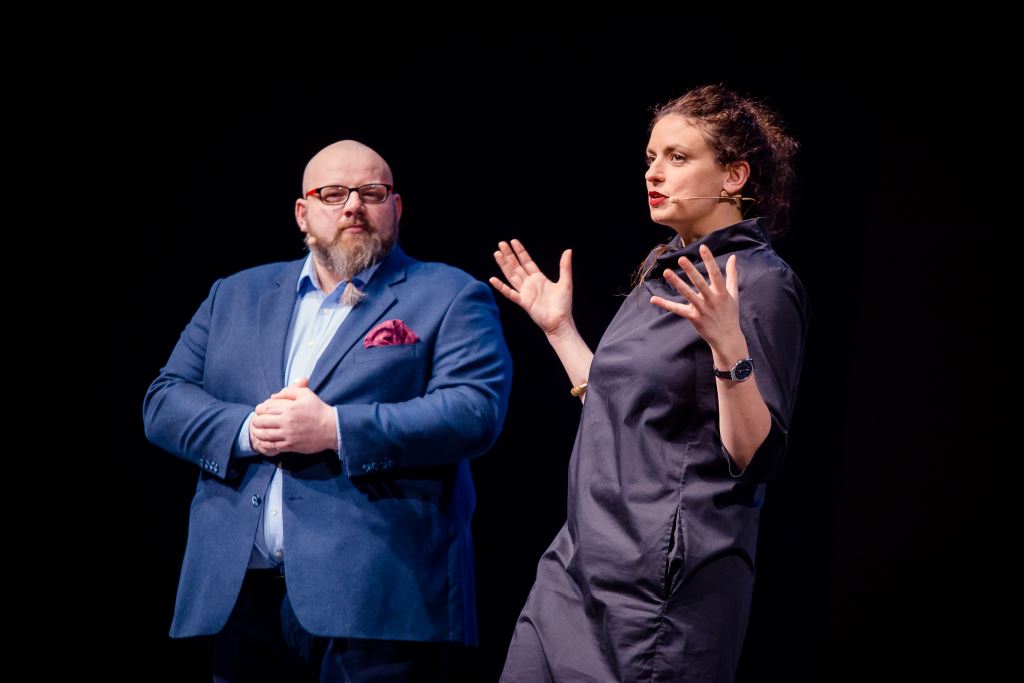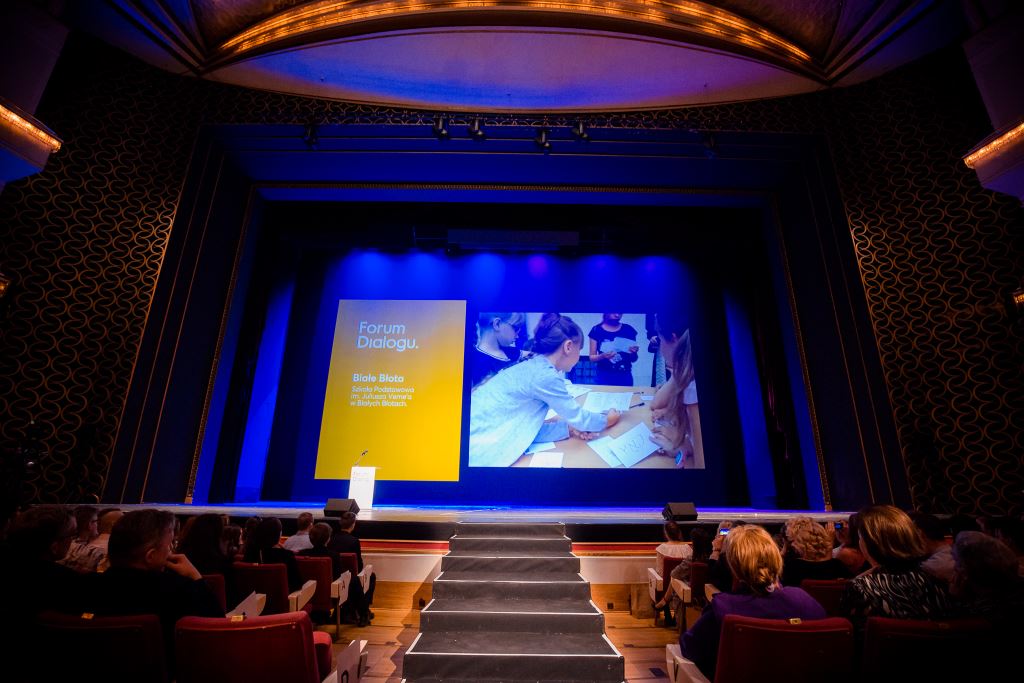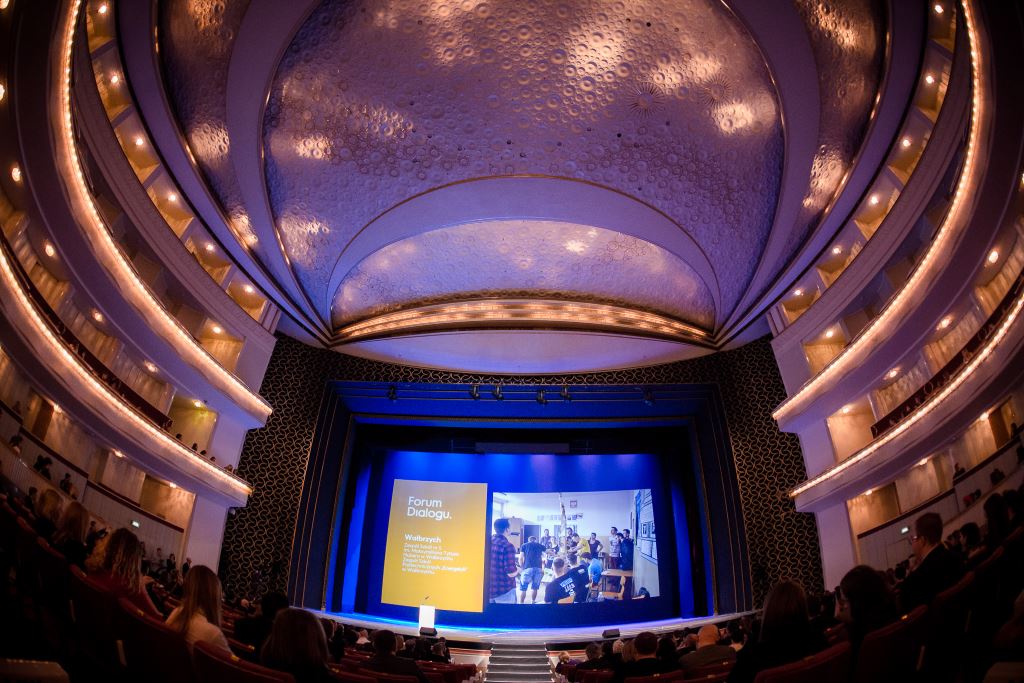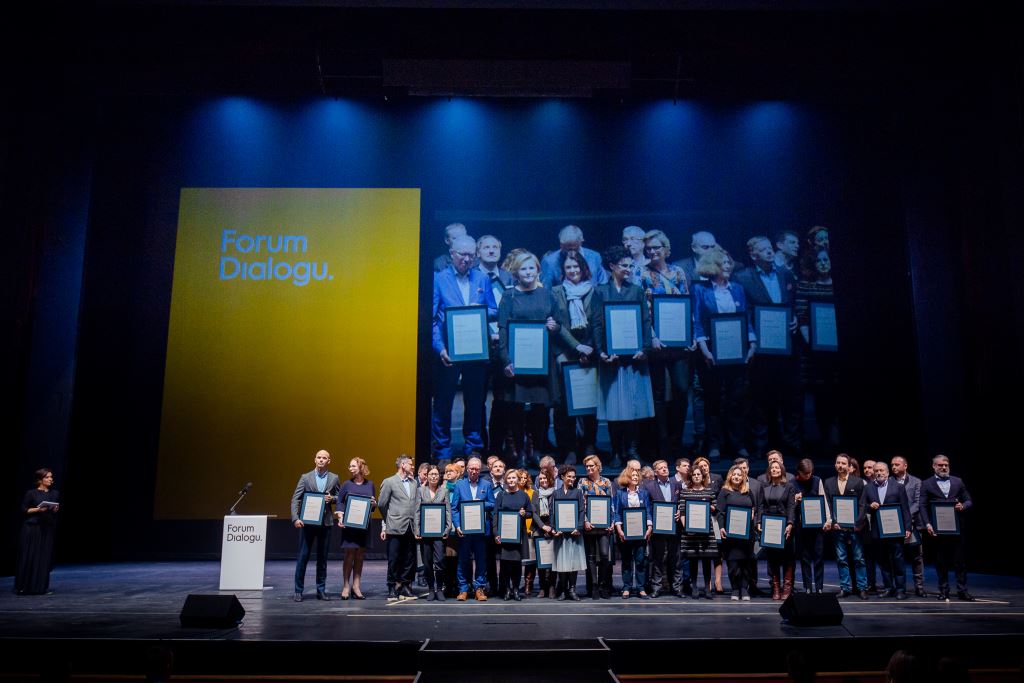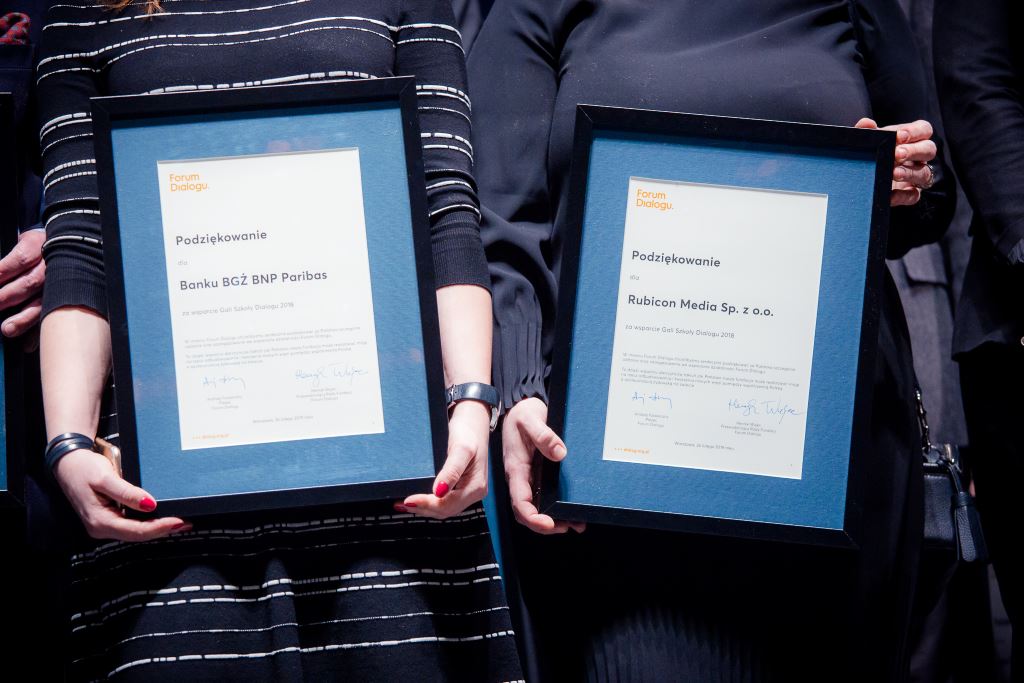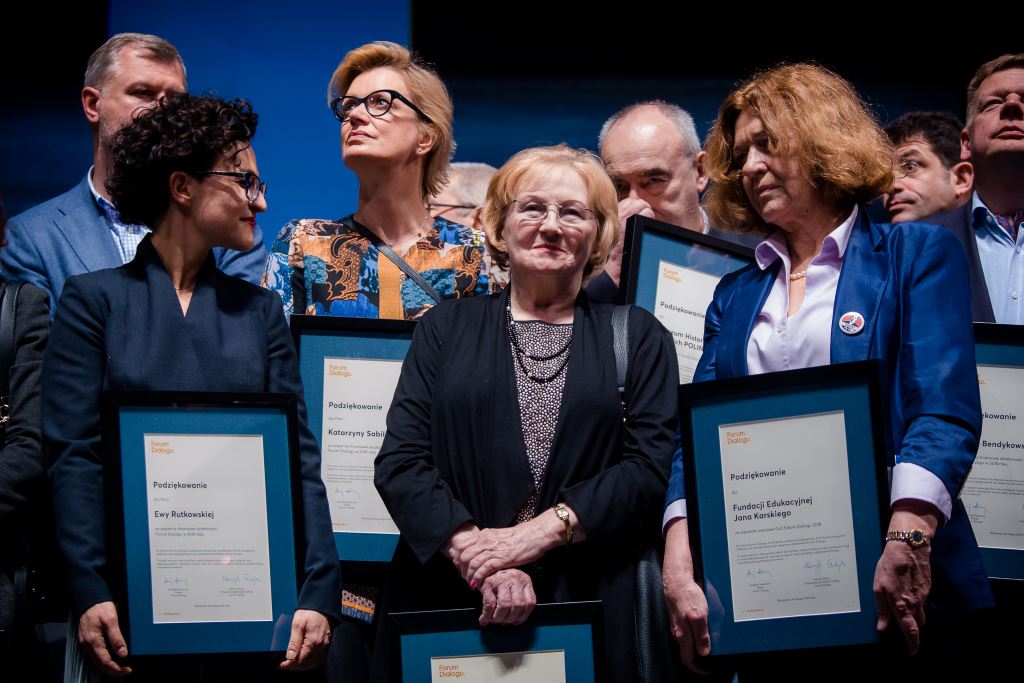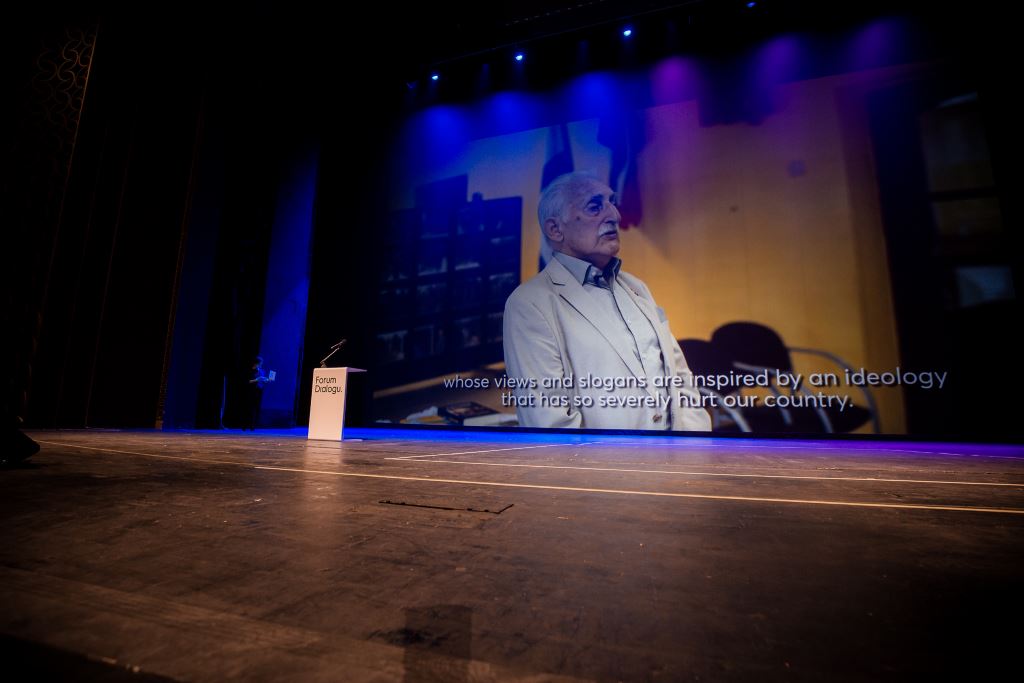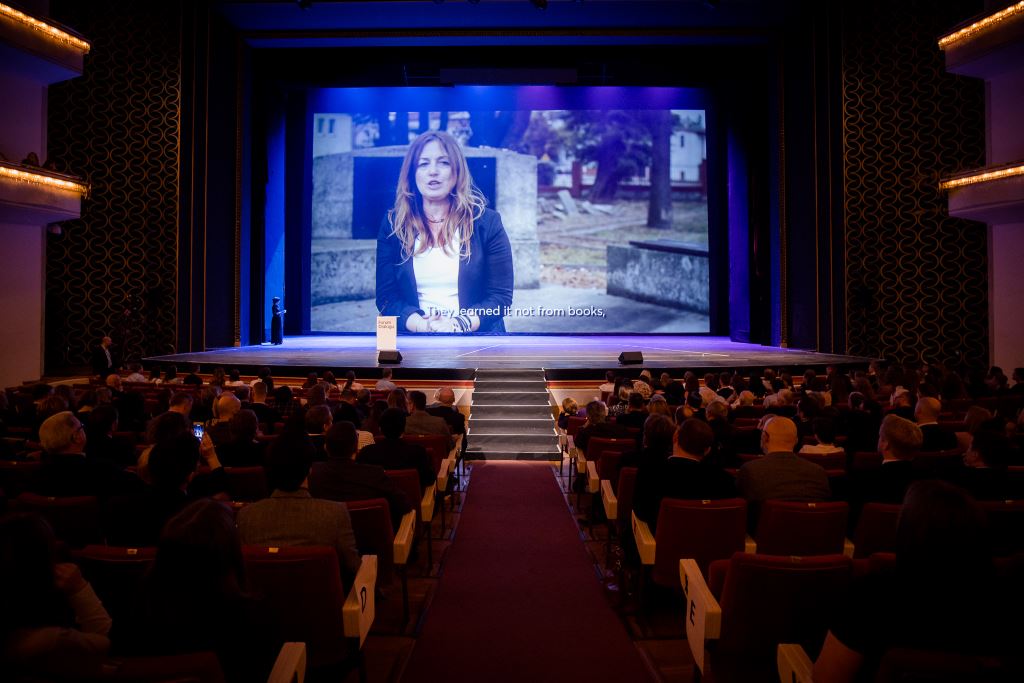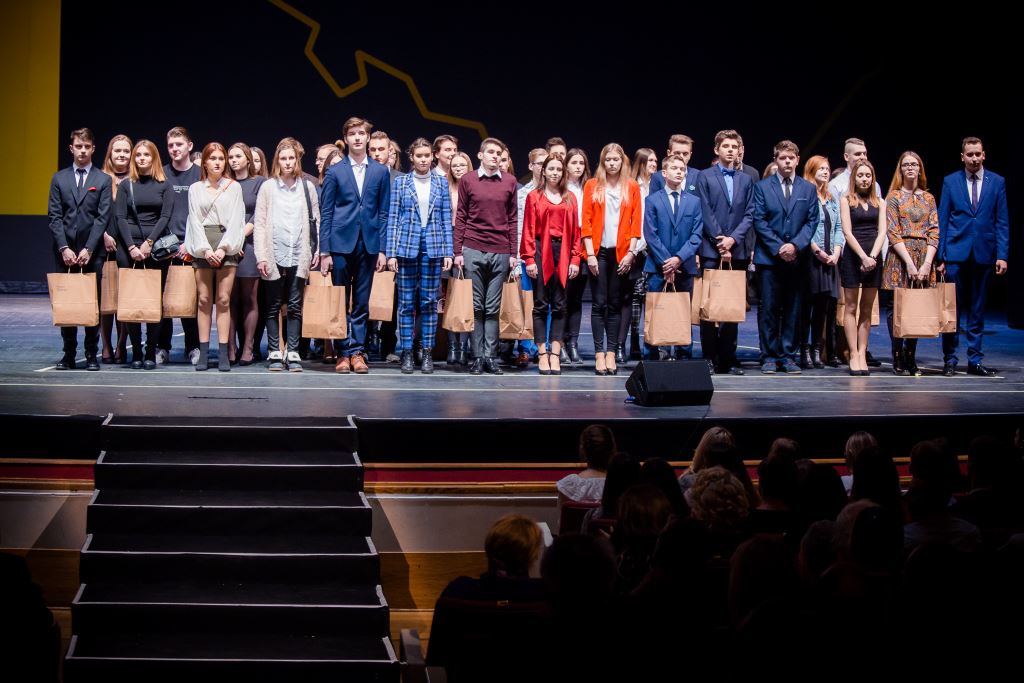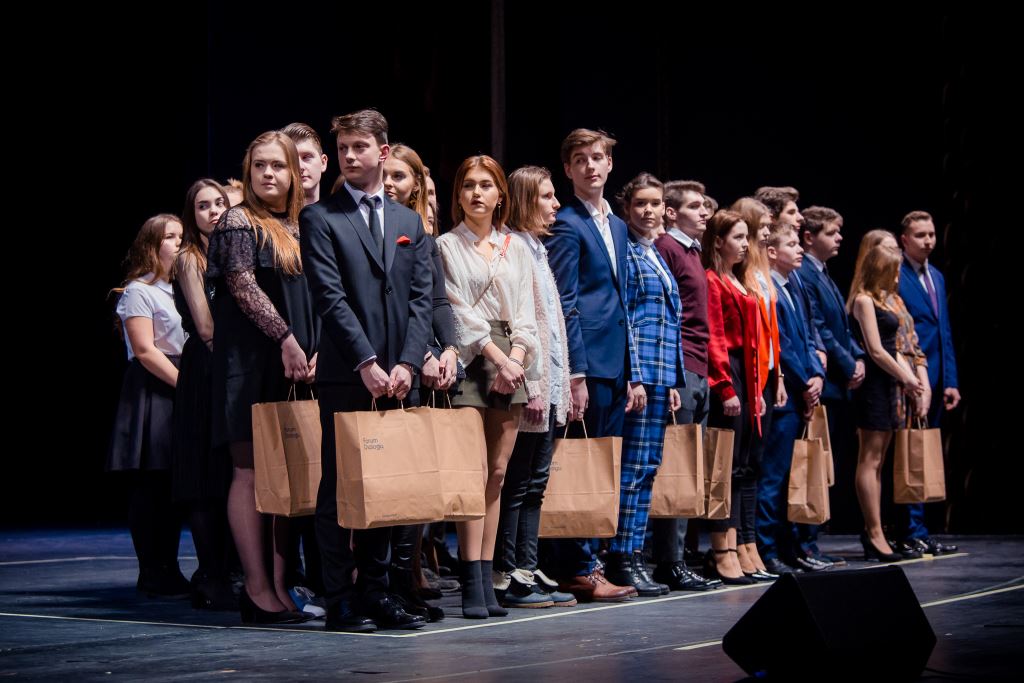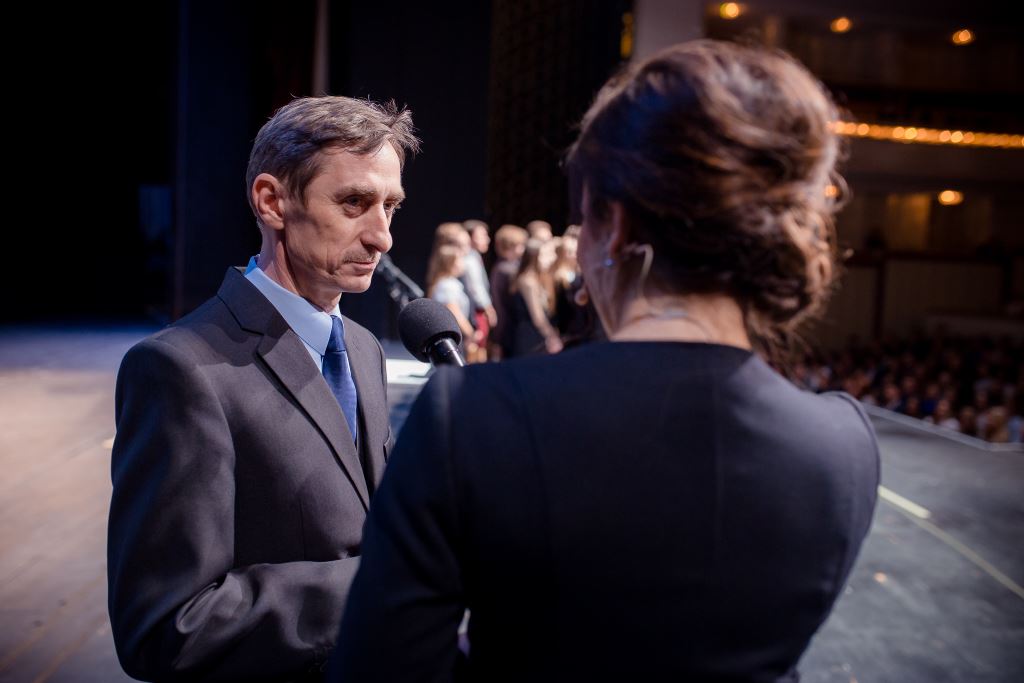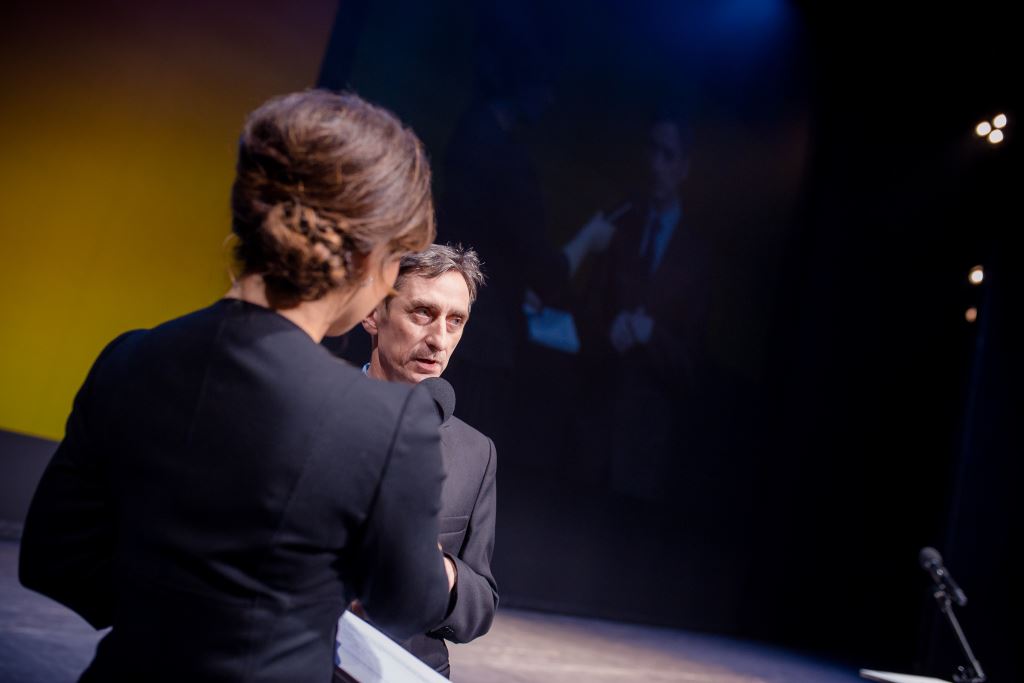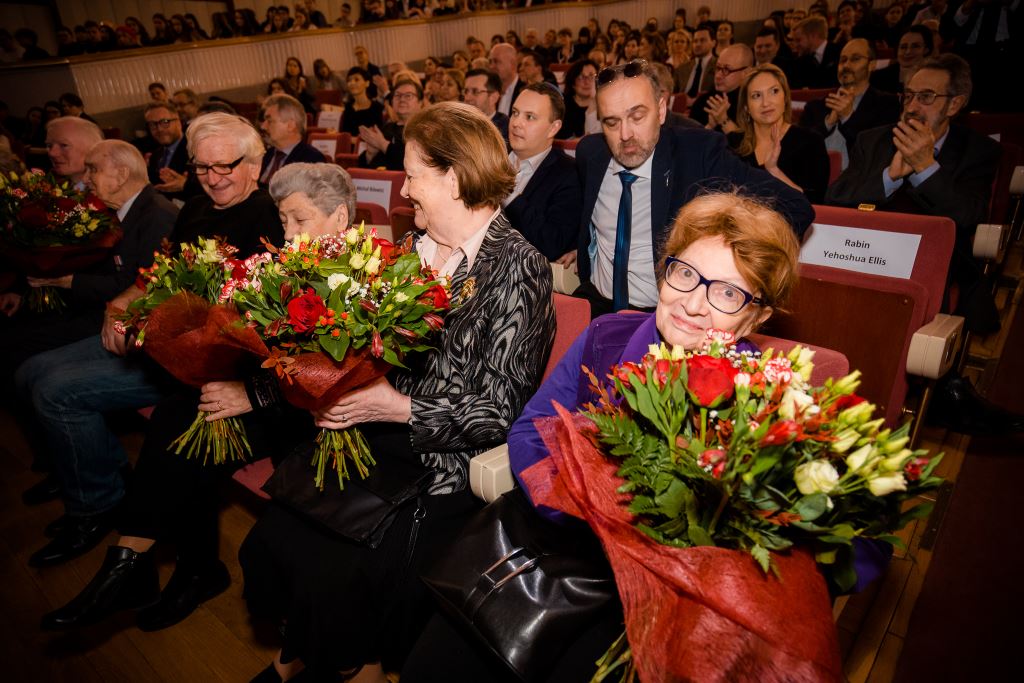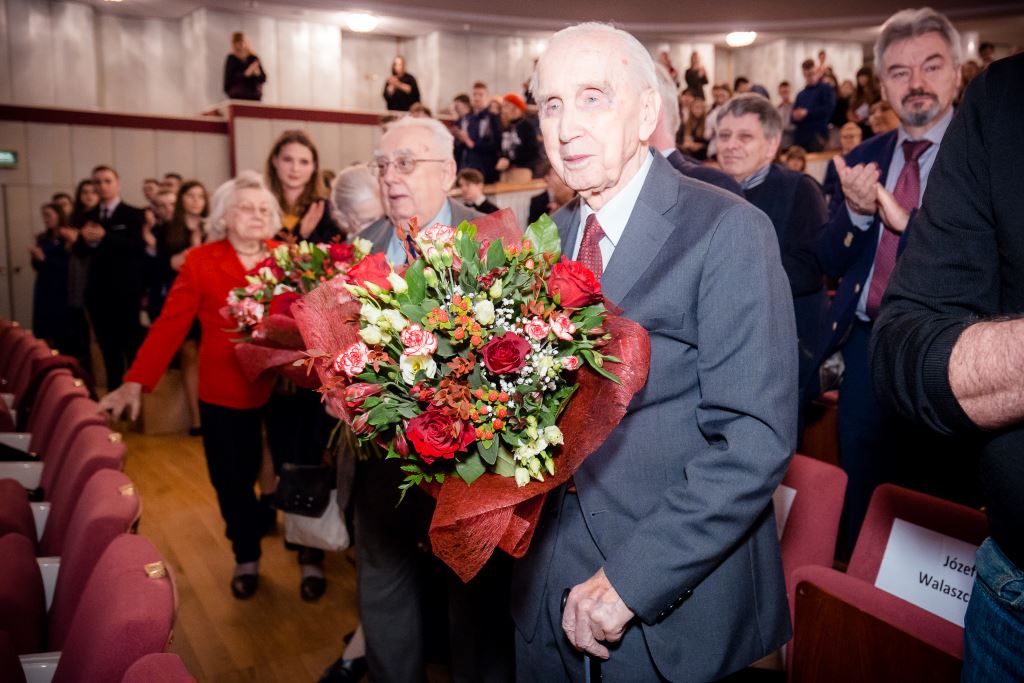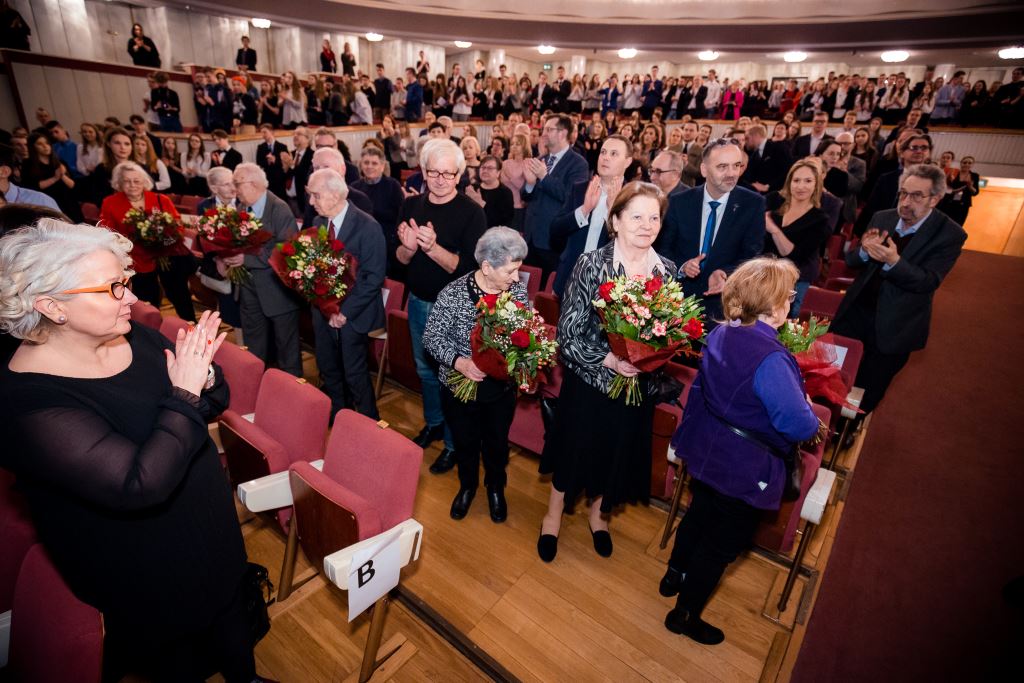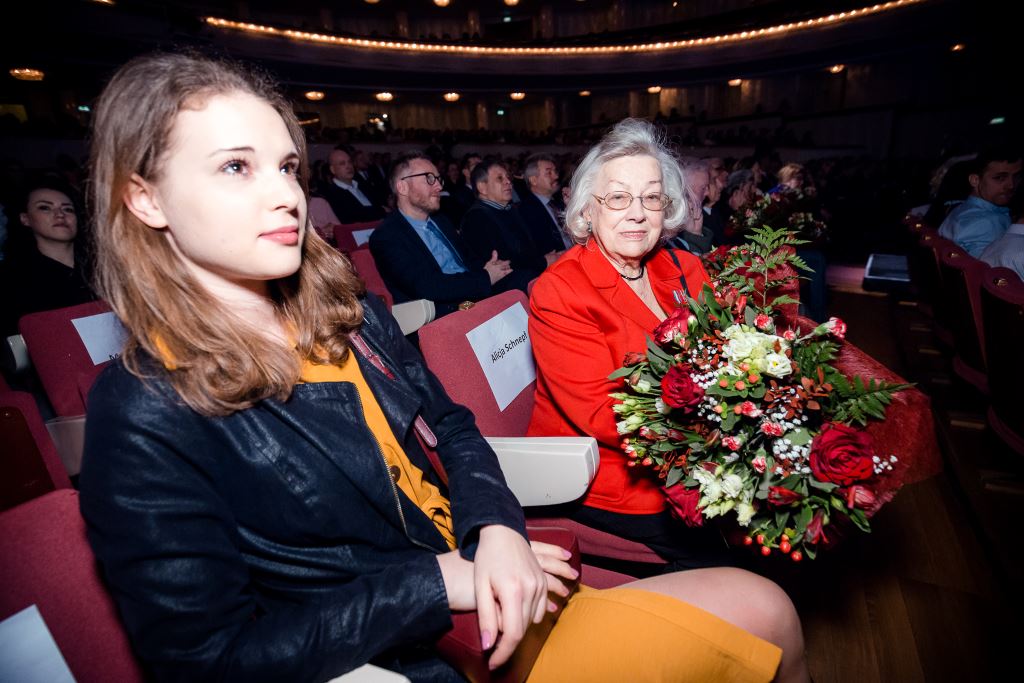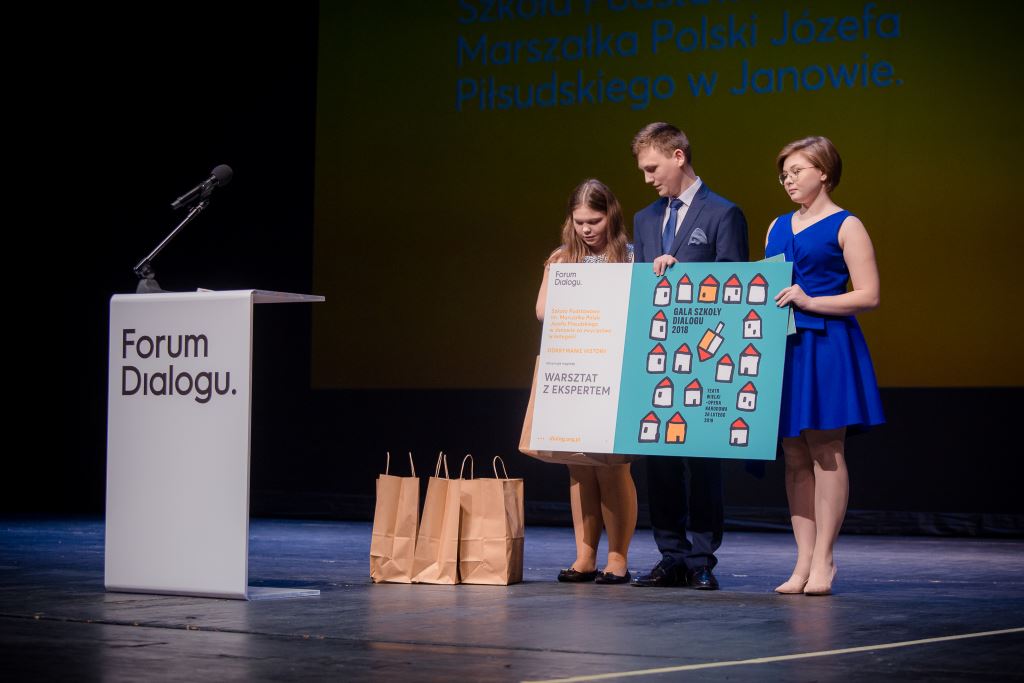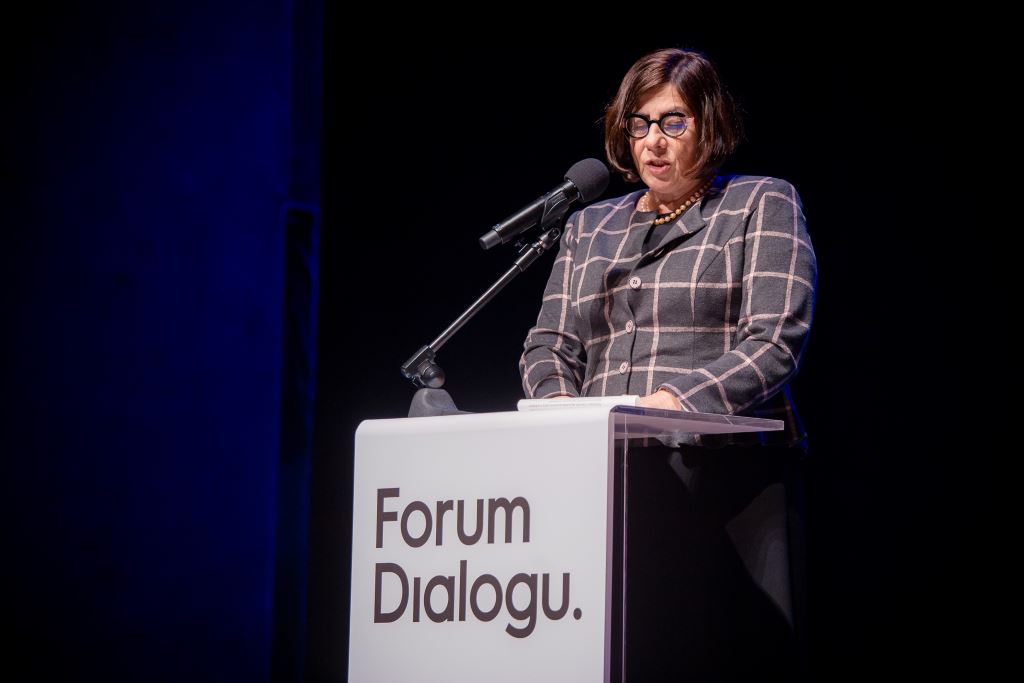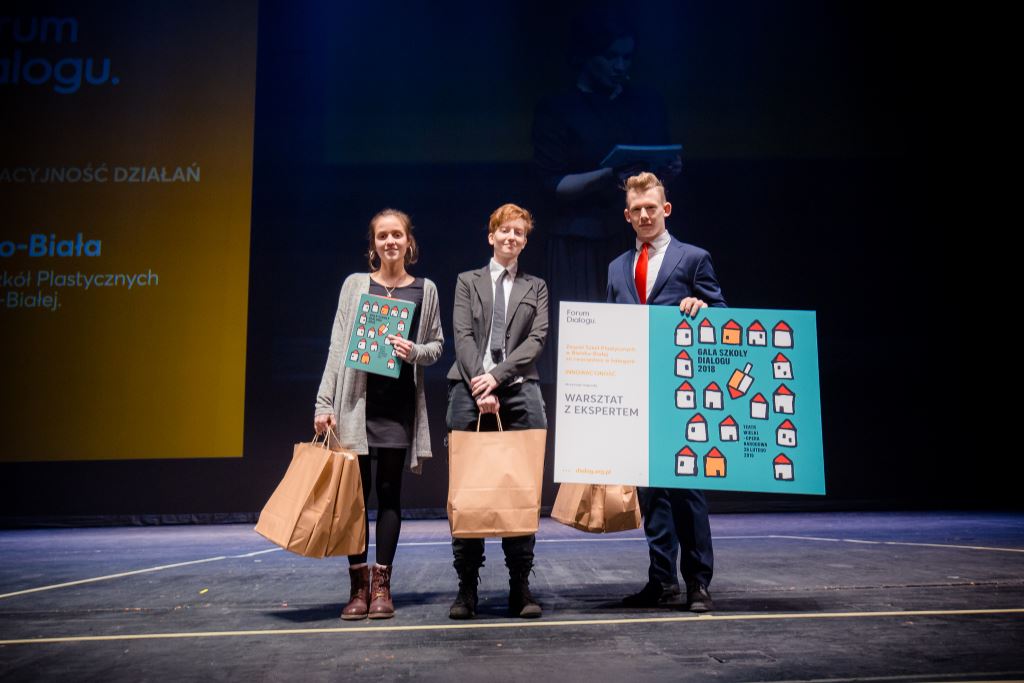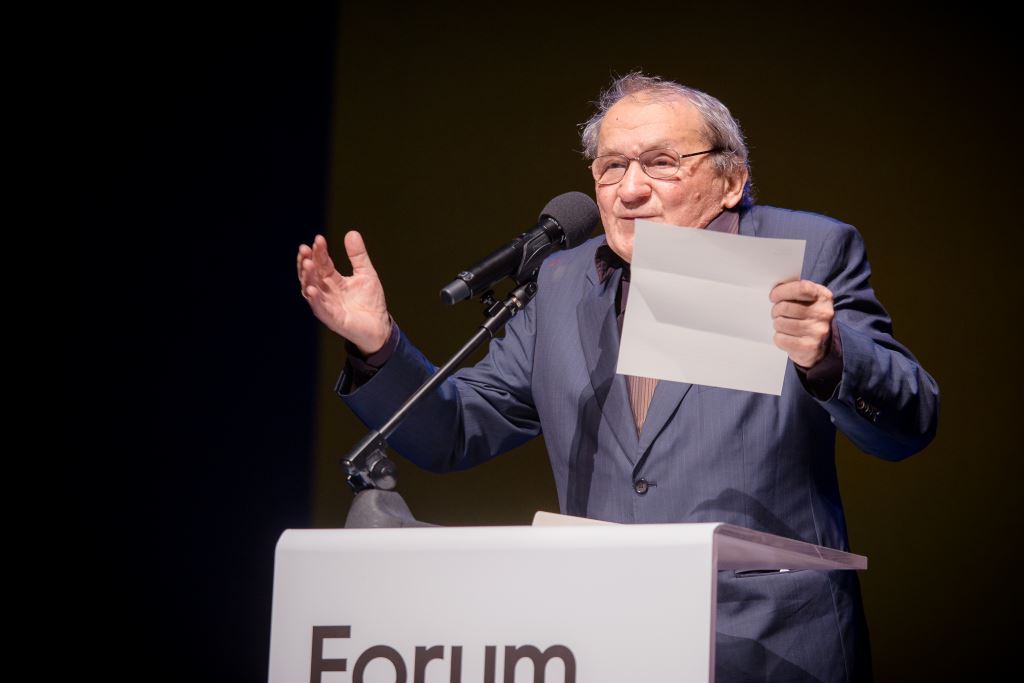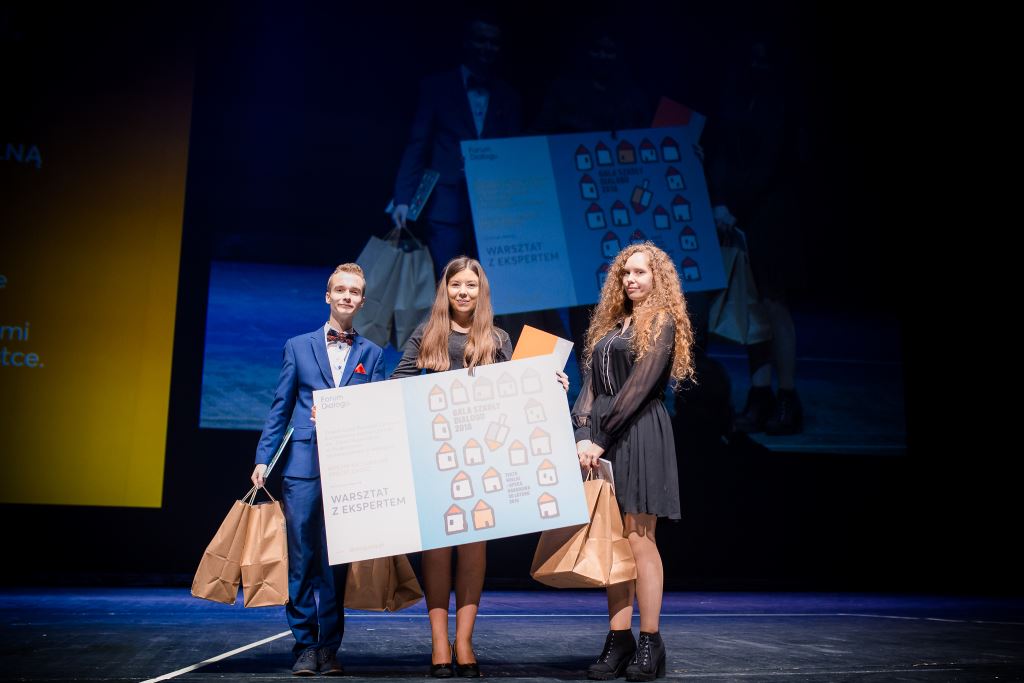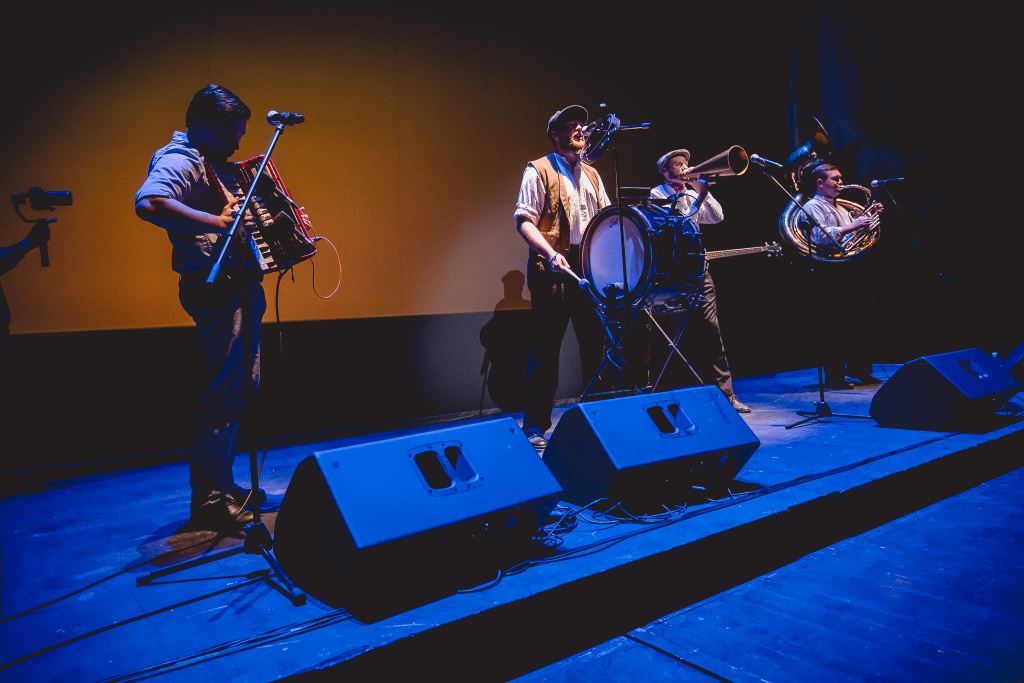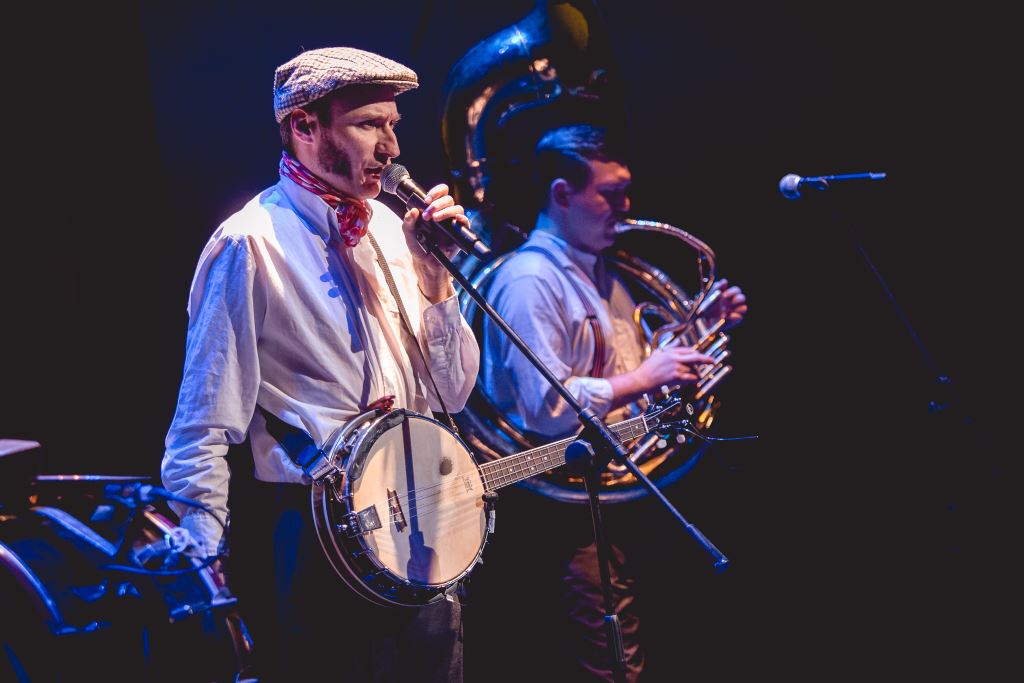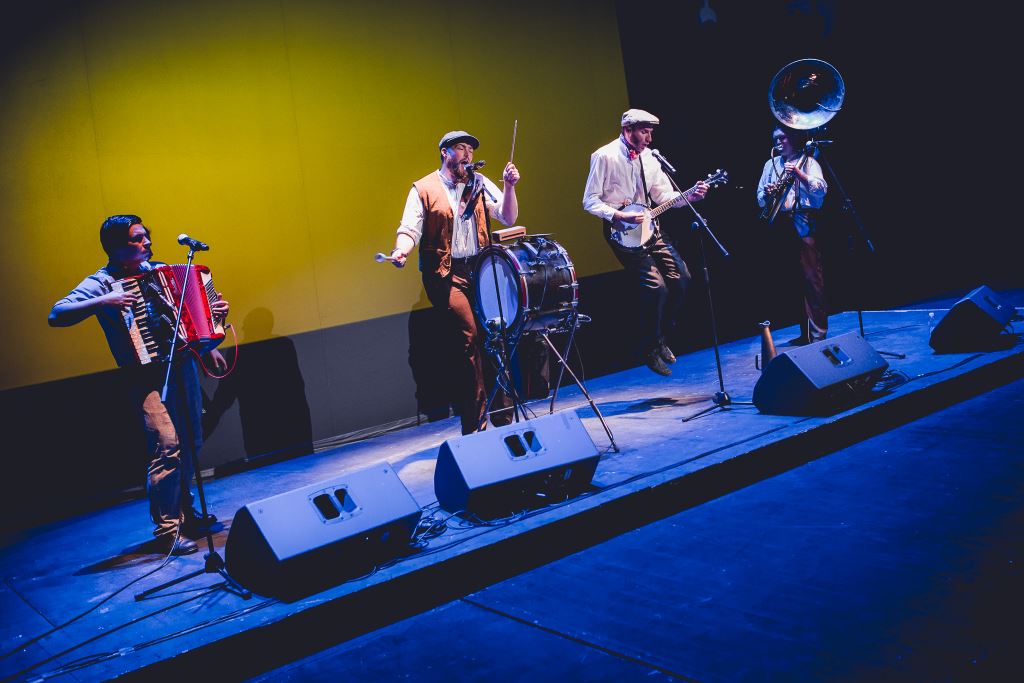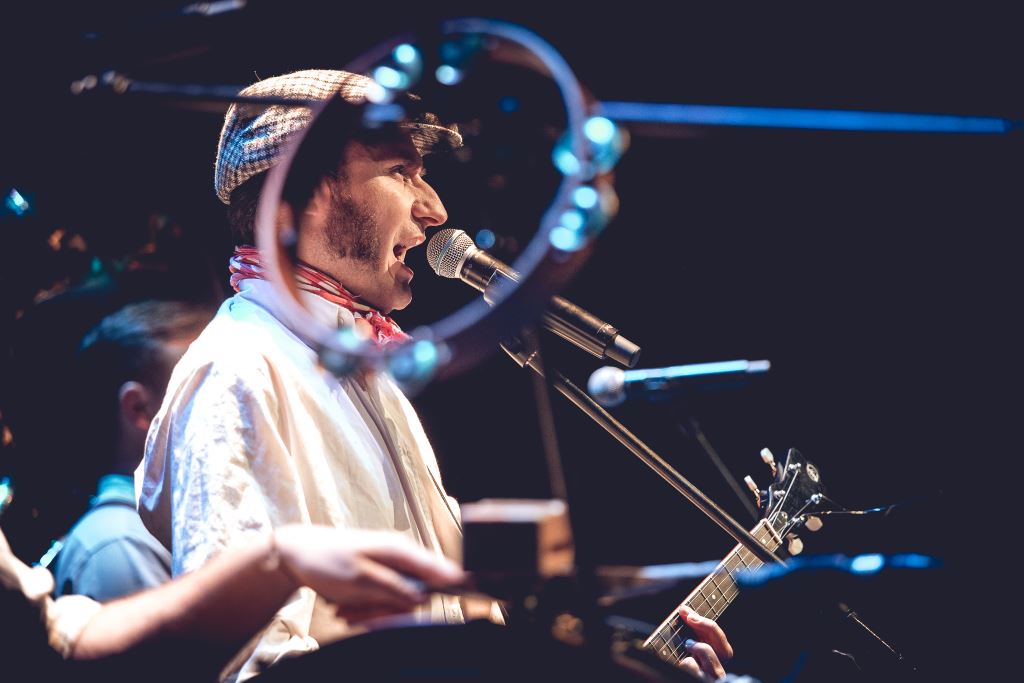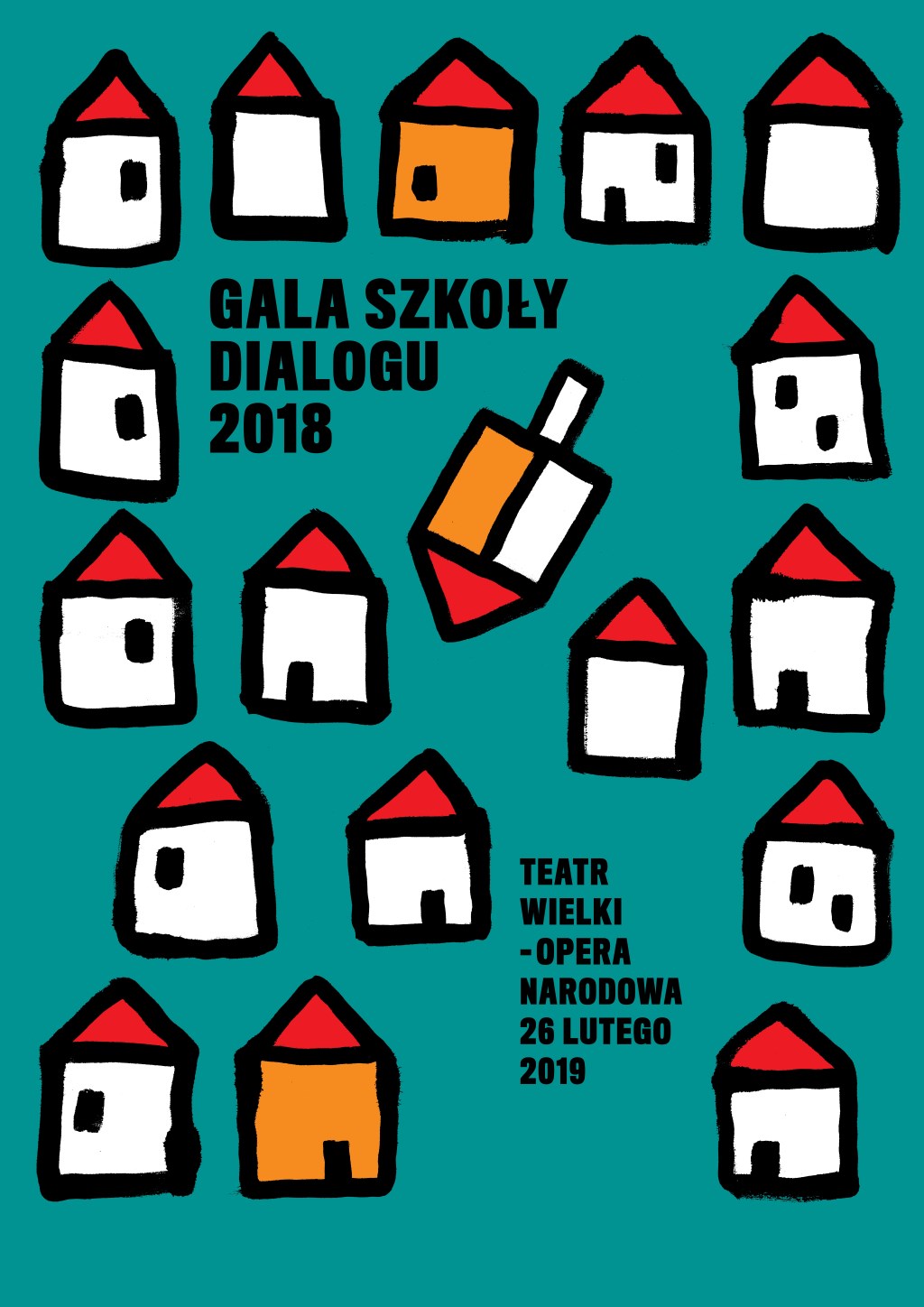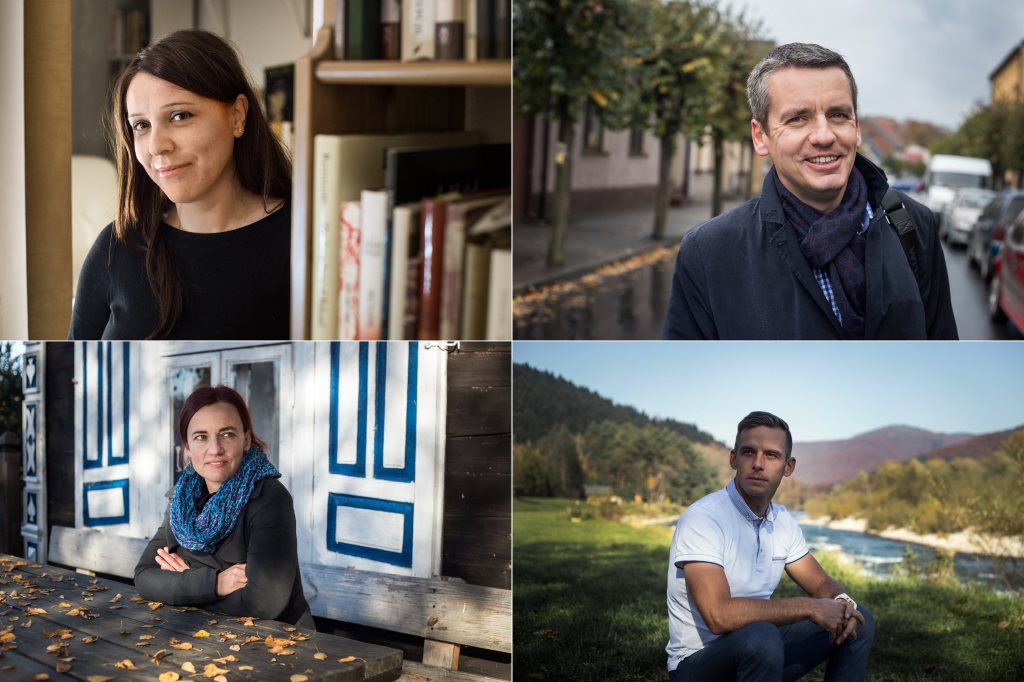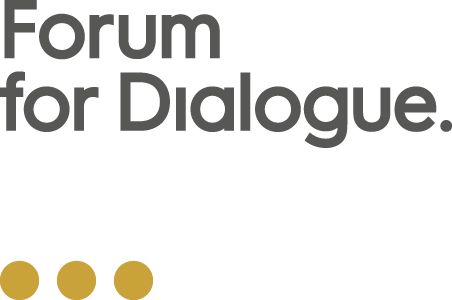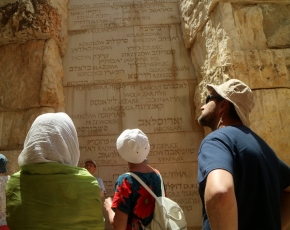
Begun in 2019, the „Shared Heritage” program, is a Forum initiative born out of a conviction that a real change in Polish/Jewish relations must include leaders of Polish Christian communities and entail a deep reflection on the shared heritage of history and religion that unites us.
“Shared heritage” is a phrase used repeatedly in “Nostra Aetate 4”, a document of Vatican II, to denote the connection between the Christians and Jews resulting from Christianity’s rootedness in Judaism. In the Polish context, we also consider the historical heritage of Jews and Christians who lived on this land side by side. This is a bittersweet history, and is remembered thus. The Holocaust is another level of the heritage we share because it happened on Polish land and was the experience of the today’s grandparents and great-grandparents’ generation. This is a difficult heritage, one that requires more processing and consideration on the level of faith.
The participants of the program face the complicated issues of the Judeo-Christian religious heritage, as well as the difficult co-existence of Jews and Christians in Poland, including the Holocaust, which have continuous impact on Polish/Jewish relations. Our program is an ecumenical space to learn about these issues and discuss ways of addressing the challenges of this heritage in our local communities and Poland overall.
The program is not only facts, but an insight into history from the perspective of the person, dignity, right to life, dreams. This difficult truth often moves you to the bone. It also fortifies your respect for the victims, calling evil for what it is, and refuses to excuse anyone. The process of forgiveness requires truth.
Michał Senk, Director of The Centre for the Thought of John Paul II in Warsaw
In 2019 we organized three seminars for 21 participants of the pilot edition of the Shared Heritage program: in Warsaw, Jerusalem, and Łódź. We’ve invited leaders from various Christian communities in Poland: lay activists, clergy, journalists, and scholars. The program was conceived of as a year-long process, which not only introduced the participants to the complexities of Christian/Jewish relations and a offered a direct insight into the Jewish perspective on theological, historical, and social issues, but, more importantly, also made them sensitive to the need of raising these issues among the communities which they can impact.
The inaugural meeting in Warsaw focused on Polish and Jewish discourse on the Holocaust and the history of the Polish research of the Shoah. The participants considered how the memory of historical events that are difficult and oftentimes not fully understood translates into personal narratives.
During the weeklong stay in Israel the participants met with Yad Vashem Institute experts, including Professor Yehuda Bauer, to listed about prewar Jewish life in Poland, as well as the history of antisemitism and the Holocaust.
These meetings turned into deep discussions of historical, philosophical and theological issues, which incorporated both the Polish and Israeli narratives of the past. The program included also a study visit of Jerusalem, Shabbat dinners with members of the Kehillat Yedidya synagogue, and encounters which enabled the participants to glean the perspectives of Survivors or members of the second generation. This personal dimension of conversations enabled a constructive confrontation of the official Polish and Israeli narratives about Polish/Jewish relations.
The program finished with a seminar in Łódź hosted by Łódź Archbishop Grzegorz Ryś, and centered around the institutional approaches of Christian churches to Judaism since World War II till today. The meeting was also an opportunity to discuss, on the basis of knowledge gathered so far, the conditions of Christian/Jewish dialogue in Poland via a series of three questions guiding the entire program: where do we come from, where are we, and where are we going?
Conversations about the state of our mutual relations, addressing real problems gave me a sense of a real dialogue of Jews and Christian. It was an incredibly important experience for me, which allowed me to break through the superficiality of dialogue of handshakes that change nothing.
Anna Siemieniec, Coordinator of Day of Judaism in Catholic Church at the Edit Stein House in Wrocław
Due to restrictions imposed by the pandemic, in 2021 the program took on a new form. Aimed at reaching a broader audience with its interesting program, it took on a more accessible format.
The series of nine sessions entitled Shared Heritage: Conversations about Christian/Jewish Relations, gathered an audience of over 300 participants interested in the subject. We invited experts in this field from Poland and abroad to discuss the complexity of Christian/Jewish relations and the Jewish perspective on theological, historical, and social issues. Stanisław Krajewski, a philosopher and member of the Forum’s Scholarly Advisory Board, was the first speaker of the series with an introductory talk on Christian/Jewish dialogue. Rabbi David Rosen offered insight into the challenges of interfaith dialogue from a Jewish perspective. The conversation with rabbi Jeffrey Fox focused around the questions presented by the modern times, such as if a woman could be a rabbi, while Aliza Kline continued this theme with a presentation on making Jewish rituals relevant in the modern world.
All sessions that took place are available on Forum’s YouTube channel.
We believe strongly that a real change in Polish/Jewish relations must also involve the leaders of Christian communities. That is why we addressed a separate Shared Heritage educational offer to the students of the Theological Seminary in Łódź. In December, we co-hosted an online lecture by Amy-Jill Levine, a Professor at Vanderbilt University Divinity School, who discussed common mistakes in the Christian understanding of Judaism.
In 2021, the program is co-financed by the Dutch Humanitarian Fund and the Congregation of Our Lady of Sion.

Marcin Dziurdzik June 6th, 2019
Posted In: EN Programs
Leave a Comment

The week-long Forum for Dialogue Study Visit to Poland for our guests from United States has just finished. This trip, chaired by Forum’s longtime Friend Lisa Van Allsburg, was a chance for Jewish visitors from the US to learn about modern Poland and Polish/Jewish dialogue, but most importantly to meet School of Dialogue students and Leaders of Dialogue who discover, preserve, document, and share knowledge about Jewish heritage in Poland and cultivate the memory of Jewish communities once populating their towns and villages.
The study trip was opened with a dinner attended by Forum’s President Andrzej Folwarczny. Next days, participants toured Warsaw and its Jewish sites. Program’s tight schedule included meetings with experts on Jewish history and modern Poland and in-depth site visit to the POLIN Museum as well.
After leaving Warsaw the group headed to Lesser Poland province in southern Poland. In Brzesko, they visited Nicolaus Copernicus High School, a continuing School of Dialogue. After getting to know each other during a introduction workshop run by a Forum educator, which included a performance of a song written and performed by students in memory of the Brzesko Jews, the students took our group to the local Jewish cemetery where they lid candles and shared very touching words. Afterwards some of the students joined the group on a walking tour around Jewish sites of the town, during which they provided insightful and emotional stories of the Jewish inhabitants of Brzesko. Participants of the tour expressed that they were amazed by “students’ dedication and devotion to discovering and restoring Jewish heritage in their town” and that they were “wise and learned beyond their years.”
photos by H. Gospodarczyk and M.Usiekniewicz
In Nowy Sącz, a town famous for its Art Nouveau architecture and once-vibrant Jewish life, they met with Leaders of Dialogue from Shtetl of Tsanz. Named after the Yiddish word for the town of Nowy Sącz, this grassroots organization appeared almost organically, gathering people of different professions and talents inspired by the town’s rich Jewish history, a need to preserve and educate about it, and a desire to make contact with descendants of local Jews from all over the world. After the amazing tour of the town guided by Shtetl of Tsanz’s Artur Franczak and Łukasz Połomski, the participants and Leaders together enjoyed a Shabbat dinner.
We finished the program with a visit to Auschwitz-Birkenau Memorial and Museum and a tour of Jewish Krakow accompanied by another round of meetings with experts on Polish/Jewish relations and their complicated history.
Marcin Dziurdzik May 24th, 2019
Posted In: EN News 2019
Leave a Comment

We have recently completed the Polish/Jewish Exchange Program visit to the U.S. organized in cooperation with the AJC. Between March 31-April 7 the Polish delegation visited Washington, D.C., Boston, and New York. The intense program included meetings with representatives of the AJC and David Harris, Chief Executive Officer of the AJC, a dinner with prof. Susannah Heschel, the Eli Black Professor of Jewish Studies at Dartmouth College, and a meeting with Izzy Arbeiter, a Holocaust Survivor.
The participants also had a special tour of the United States Holocaust Memorial Museum preceded by a meeting with Senior Curator Jacek Nowakowski, and a guided tour of NYC Chassidic communities. The Polish delegation has also benefited from opportunities for less formal conversations during home hospitality evenings. Their stay ended with a special meeting with our Friends of the Forum in New York.
Marcin Dziurdzik April 10th, 2019
Posted In: EN News 2019
Leave a Comment

Forum for Dialogue has launched another long-awaited new program in response to the challenges faced in Polish/Jewish dialogue. “Common Heritage,” which we organized this year in partnership with Yad Vashem, is an initiative addressed to representatives of lay and ordained Christian leadership in Poland who have the power to impact the way in which Polish/Jewish relations are discussed and understood in Polish churches and religious communities.
The program challenges participants to examine the complex issue of the common Judeo-Christian heritage as well as the troubled coexistence of Jews and non-Jewish Poles that has impacted Polish/Jewish relations in the past and continues to affect them now.
Given the impact of Christian leadership in Polish public life, it is important that those who participate in shaping attitudes understand and are sensitive to the history and experiences of Polish Jews and their descendants living all over the world.
This year the “Common Heritage” program involves 3 intense seminars, two in Poland and one in Israel. We opened in with a seminar in Warsaw in March, during which the participants learned about Polish and Israeli memory of the Holocaust, Polish research on the Holocaust, and how objective history transforms into personal story.
Marcin Dziurdzik March 20th, 2019
Posted In: EN News 2019
Leave a Comment

Forum’s educators continuously work on upgrading their teaching and facilitating skills, as well as on deepening their knowledge about the history and culture of Polish Jews. Last month they have participated in a seminar conducted by Renata Masna and Michał Chojak of Yahad – In Unum, a French organization founded to locate the sites of mass graves of Jewish victims of the Nazi mobile killing units in Ukraine, Belarus, Russia, Moldova, and Poland. It achieves this mission through archival research and research trips collecting testimonial and forensic evidence of the murders. Its publication “Holocaust by Bullets” was awarded the 2008 National Jewish Book Award by the Jewish Book Council.
Renata and Michał presented the “Holocaust by Bullets” and later shared with the educators Yahad’s unique investigative methodology. This was also an opportunity for the educators to practice their interviewing skills so important when talking to people who witnessed and experienced historical events. Interviewing is a skill useful while working with School of Dialogue students who very often include interviews with elderly members of their local communities into the research for their commemorative projects.
Marcin Dziurdzik March 12th, 2019
Posted In: EN News 2019
Leave a Comment

With the School of Dialogue Gala exactly one week away, we are proudly presenting this year’s poster designed by Tomek Frycz and Marcin Wicha. Wicha is an acclaimed graphic designer, illustrator, columnist, and writer. He has designed book covers, posters, and logos, as well as published on the significance of design in everyday life. In 2018, he received the 2018 Nike Literary Award – one of the most prestigious awards for Polish literature – for his essay collection, “Things I Didn’t Throw Away,” devoted to the author’s memories of his mother. Through the story of their difficult relationship, he explored such topics as having Jewish roots in Polish society of communist era, the mindset of Polish intelligentsia, and how his family has acquired and hoarded things. His designs are famous for their economic style and use of bold colors. Tomek Frycz is a designer, painter, and jazz musician.
Marcin Dziurdzik February 19th, 2019
Posted In: EN News 2019
Leave a Comment
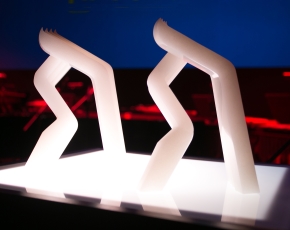
For the fourth time in history, the POLIN Museum of the History of Polish Jews awarded individuals, institutions, and organizations preserving the memory of Polish Jews during the POLIN Award Gala. Among the 7 nominees were the Leaders of Dialogue: Kamila Klauzińska from Zduńska Wola, Łukasz Parus from Zagórów, and Katarzyna Winiarska from Białowieża.
Selected from among over a hundred candidates, the nominees are recognized for their individual contributions towards building mutual understanding and respect between Poles and Jews. The main prize was awarded to Tomasz Wiśniewski, an activist working tirelessly to preserve the memory of Podlasie’s Jewish communities, while Dariusz Popiela, of the Shtetl of Tsanz, and Magdalena Lewkowicz, a teacher and activist from Mrągowo received honorable mentions.
Recognizing that the work of all of the nominees embodies Forum’s mission, we would like to congratulate them all: winners, nominees, and candidates! We appreciate your tireless and important work!
Photo: M. Starowieyska / POLIN Museum of the History of Polish Jews. From the left: Kamila Klauzińska, a Leader of Dialogue from Zduńska Wola, Łukasz Parus, a Leader of Dialogue from Zagorów, Katarzyna Winiarska , a Leader of Dialogue from Białowieża, and Dariusz Popiela, an activist of the Shtetl of Tsanz.
Marcin Dziurdzik December 5th, 2018
Posted In: EN News 2018
Leave a Comment
« Previous Page —
Next Page »
